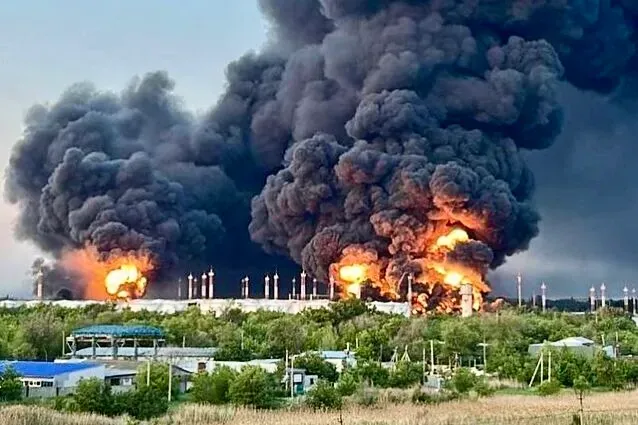-
Finnish PM criticizes reported attempts by Trump to weaken Russia sanctions bill
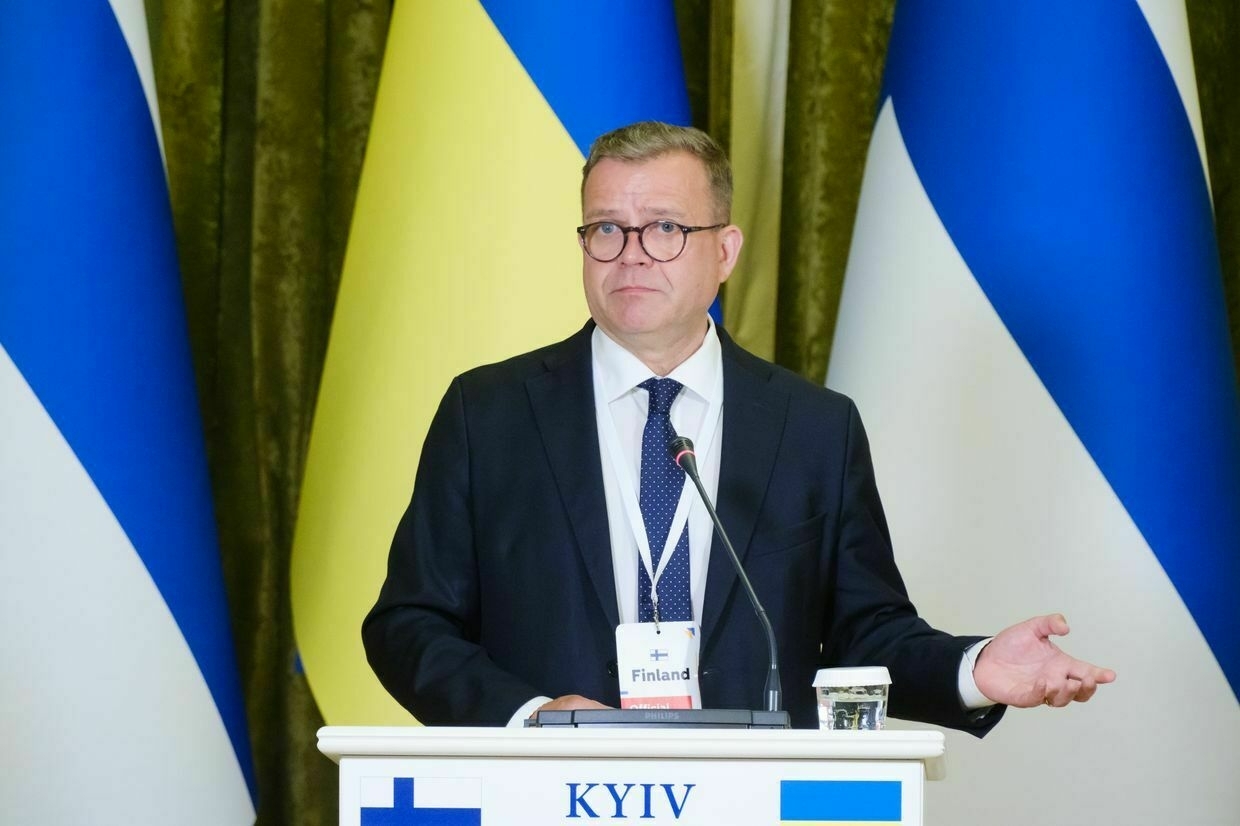
Finnish Prime Minister Petteri Orpo on June 7 criticized a weakened Russia sanctions bill amid reports that U.S. President Donald Trump is pressuring the Senate to weaken the legislation.
“We need to force (Russian President Vladimir) Putin to the negotiating table,” Orpo said at the Finnish National Coalition Party’s assembly on June 7.
“I hope that the United States passes it as quickly and as completely as possible,” Orpo told reporters at the assembly in Helsinki.
The White House is urging Republican Senator Lindsey Graham to soften a Russia sanctions bill he is leading, the Wall Street Journal (WSJ) reported on June 6, citing congressional staffers.
The bipartisan sanctions bill could introduce a 500% tariff on imports from countries that continue purchasing Russian oil and raw materials.
“We will discuss these issues at the (NATO) summit… We should get decisions now,” Orpo said.
A NATO summit is slated to take place June 24-26 in the Netherlands. The important meeting is expected to cover a wide range of issues, including defense spending and Russia’s war against Ukraine.
At a June 5 joint press conference alongside German Chancellor Friedrich Merz, Trump said lawmakers were waiting for his approval before advancing the Russian sanctions bill.
“They’ll be guided by me. That’s how it’s supposed to be,” Trump said. “They’re waiting for me to decide on what to do."
Senate Democrat Richard Blumenthal, who also leads the sanctions bill, has confirmed that negotiations have been taking place behind the scenes with White House officials.
Operation Spiderweb ‘gave Putin a reason to bomb the hell out of them,’ Trump says, following large-scale attacks on Ukrainian citiesU.S. President Donald Trump on June 6 appeared to justify Russia’s large-scale attack on Ukrainian cities launched the night before, in response to Ukraine’s Operation Spiderweb.The Kyiv IndependentDmytro Basmat
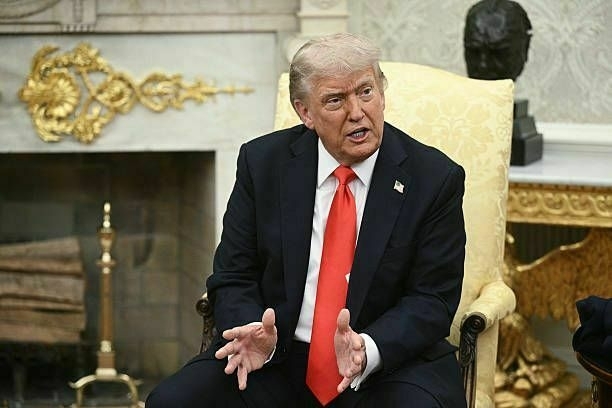
-
Russian agents who allegedly targeted Dnipro prosecutor with car bomb detained
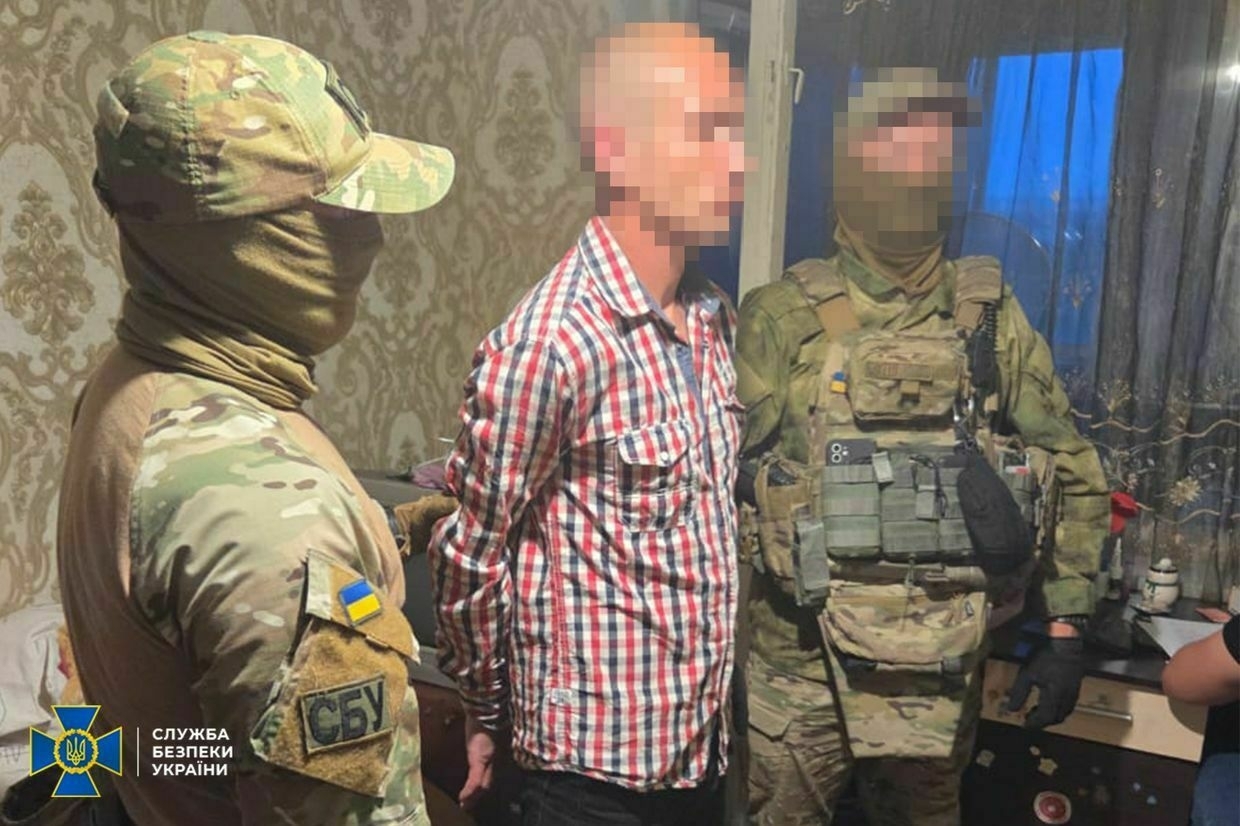
Two Russian agents were arrested by Ukraine’s Security Service (SBU) on June 7 after allegedly planting a car bomb targeting a Dnipro prosecutor on June 6.
“As the investigation established, the enemy agents turned out to be two men whom the Russian Federation recruited through Telegram channels,” the SBU said.
Russian intelligence regularly attempts to recruit Ukrainian civilians over social media to carry out terrorist attacks or gather information in exchange for money.
The two men allegedly planted an improvised explosive device (IED) under the car of a Dnipro prosecutor’s office employee.
“As a result of this crime, the law enforcement officer received minor injuries, and his vehicle was completely destroyed. According to doctors, the prosecutor’s life is currently not in danger,” the SBU said.
The detainees were instructed by Russian intelligence services to monitor the prosecutor, his daily schedule, and transport routes prior to the attack.
The two agents were then instructed to plant a car bomb and take photos and videos of the aftermath of the explosion.
“Currently, both detainees are giving law enforcement officers incriminating evidence against their curator and subversive work in the interests of the Russian Federation,” the SBU said.
The two suspects are being charged with committing a terrorist attack and could face up to 12 years in prison.
On June 5, the SBU said Russian intelligence operatives are impersonating the SBU in an expanded effort to recruit Ukrainian civilians for sabotage operations.
Ukrainian drone strikes Russian Tu-22 bomber: SBU releases new footage of Operation SpiderwebThe video shows the flight path of an FPV drone from the moment it takes off from the roof of a modular building to the moment before it strikes a Russian Tu-22M3 strategic bomber at the Belaya air base in Siberia.The Kyiv IndependentAbbey Fenbert
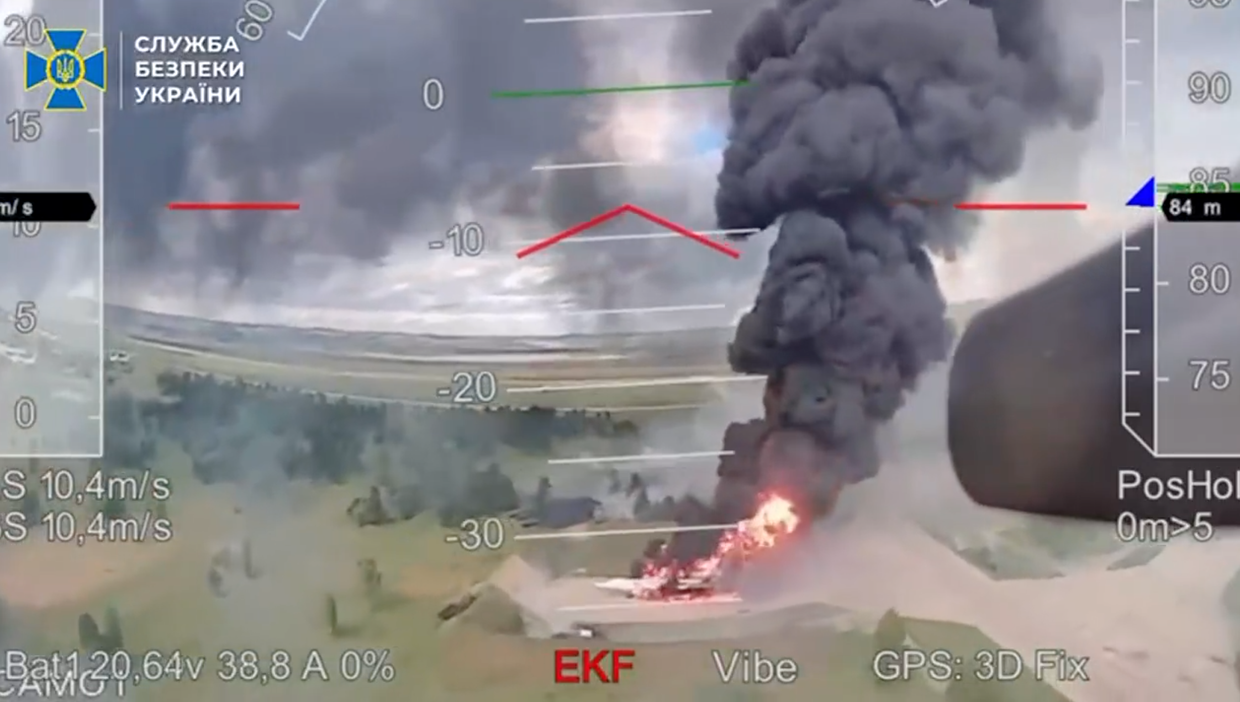
-
Kyiv Pride drone charity event takes place, faces counterprotest
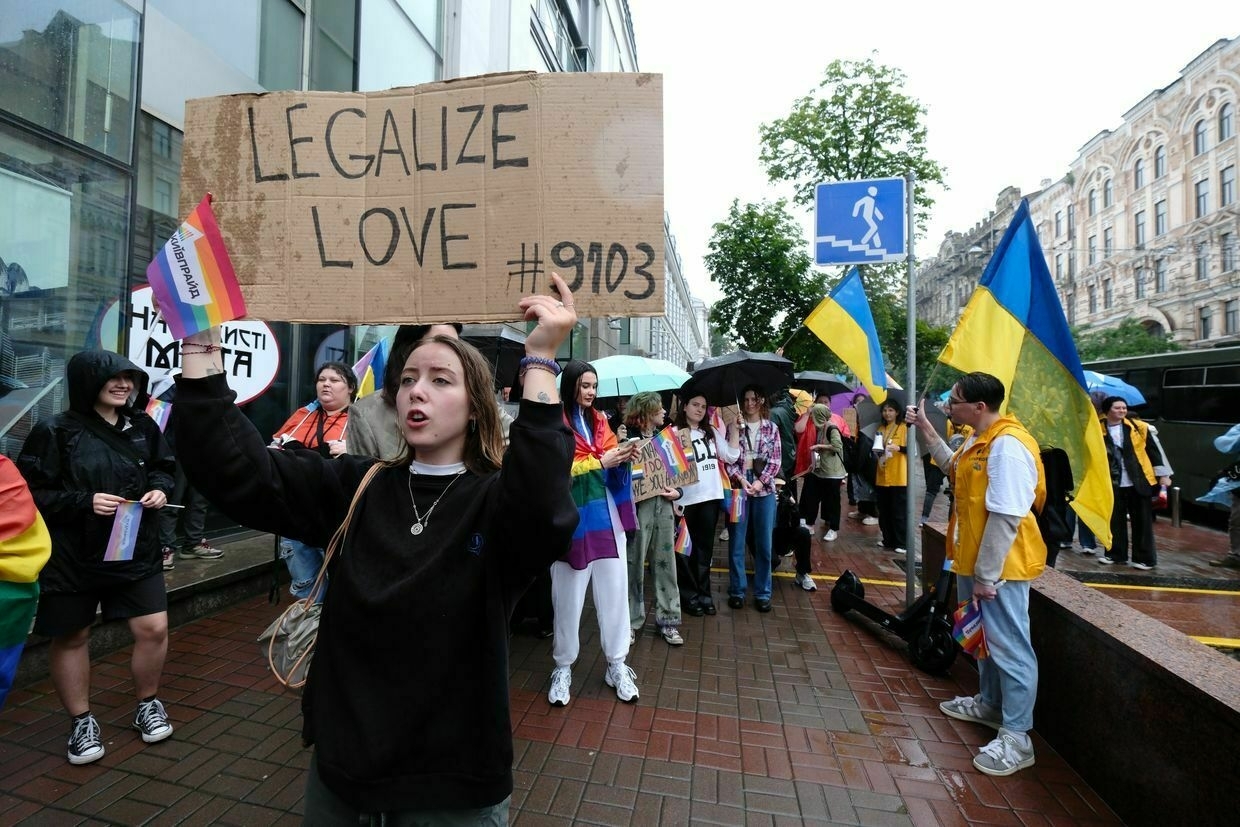
A charity event for Kyiv Pride took place on June 7 outside the Foreign Ministry and was met with nearby counterprotests.
The event collected donations, with proceeds going toward FPV drones for Ukraine’s Armed Forces provided by the Serhiy Sternenko Foundation.
On April 19, a clash broke out between police and far-right protesters outside the Zhovten cinema in Kyiv, where the Sunny Bunny LGBTQ+ film festival took place.
“This is a cultural and educational charity event. Today we will have several educational lectures, during which we will collect money for drones,” Kyiv Pride organizers told local media.
Counterprotesters stood nearby, chanting anti-LGBTQ+ slogans as the Kyiv Pride charity event took place outside the Foreign Ministry building.
Kyiv Pride’s previously planned event was cancelled amid police pressure on the National Expo Center of Ukraine (VDNG), the event organizers said.
“This year, the police did everything they could to cancel our event. They even intimidated the management of VDNG — the National Expo Center of Ukraine… Unfortunately, under such pressure, VDNG made the decision to cancel our event,” Kyiv Pride said in a post to Facebook on June 6.
Public support for LGBTQ+ rights in Ukraine has grown in recent years, but the community continues to face frequent threats and violence, particularly from far-right groups. Events such as Pride marches and queer cultural festivals are often targeted by the far right.
A 2023 poll by the Kyiv International Institute of Sociology found that over 70% of Ukrainians believe LGBTQ+ people should have the same rights as others.
Kyiv Pride held a march in June 2024 for the first time since Russia began its full-scale war against Ukraine in February 2022.
Wondering where to start with Dostoevsky? Try his Ukrainian contemporaries insteadSince the start of Russia’s full-scale invasion of Ukraine in 2022, a growing debate has emerged over the cultural and political legacy of Russian literature — particularly the global reverence for classic Russian authors, which critics argue has long served to promote the imperial narratives embedded in their work. AsThe Kyiv IndependentKate Tsurkan
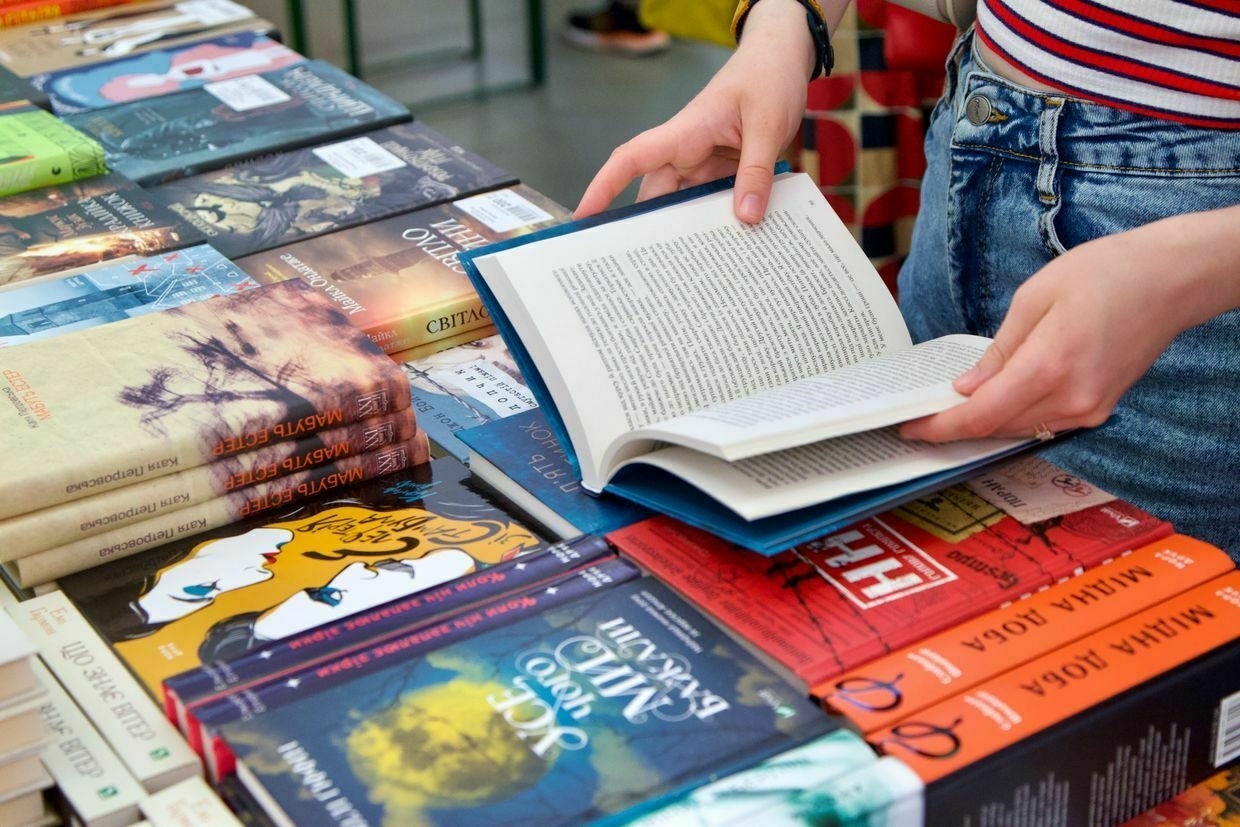
-
Chemical plant in Russia's Tula Oblast reportedly hit 2nd time in drone attack
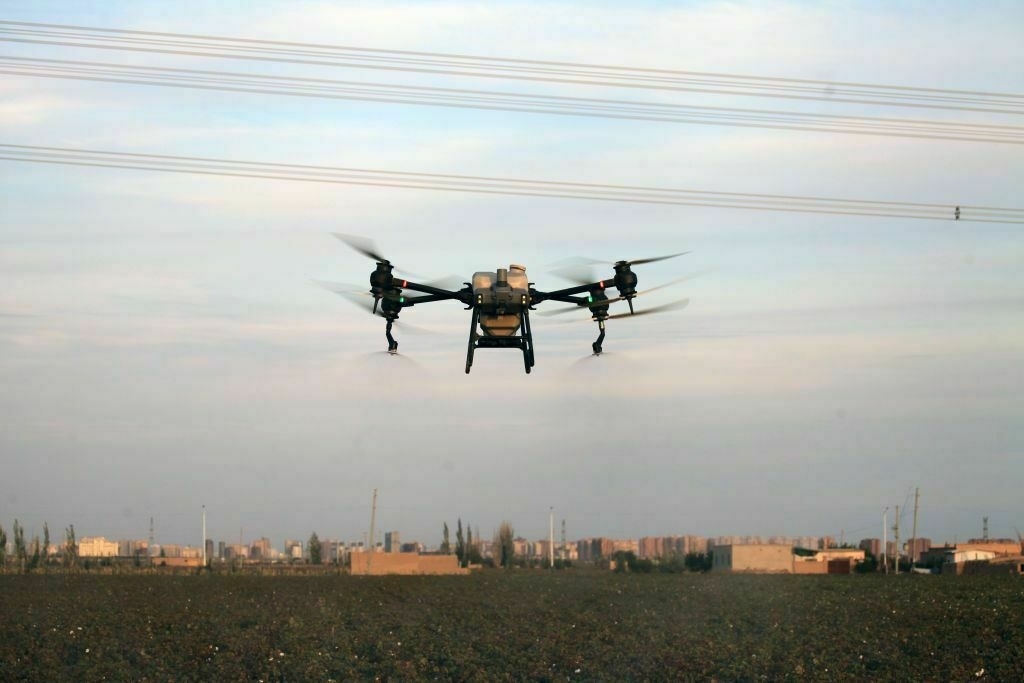
Editor’s note: This is a developing story and is being updated.
The Azot chemical plant in Novomoskovsk caught fire after it was reportedly targeted a second time in a drone attack overnight on June 8, independent news channel Astra reported.
The plant was previously struck and caught fire on May 24 in a similar overnight drone attack.
Novomoskovsk in Russia’s Tula Oblast is located about 395 kilometers (245 miles) from Ukraine.
Astra shared unverified footage of what appears to be smoke rising from the Azot chemical Plant following the June 8 drone attack.
The Azot company produces ammonia and nitrogen fertilizers, as well as organic plastics, resins, chlorine, and nitric acid, according to open sources.
Tula Oblast Governor Dmitry Milyaev earlier reported that a drone attack hazard was declared in the region.
The Kyiv Independent could not independently verify the claims.
Ukraine regularly strikes military targets deep within Russian territory in an effort to diminish Moscow’s fighting power in its ongoing war.
On June 1, Ukraine launched a game-changing drone attack on four key Russian military airfields, damaging 41 planes, including heavy bombers and rare A-50 spy planes.
Kyiv claims it has disabled 34% of Russia’s strategic bomber fleet in what is seen as one of the most daring operations during Russia’s full-scale war.
Ukraine downs fighter jet in Russia’s Kursk Oblast, Air Force saysUkraine launched a cross-border incursion into Kursk Oblast in August 2024. Reinforced by North Korean troops, Russia launched a push to recapture the region in early March, with Ukraine being forced to pull back from much of the initially taken territory.The Kyiv IndependentDaria Shulzhenko
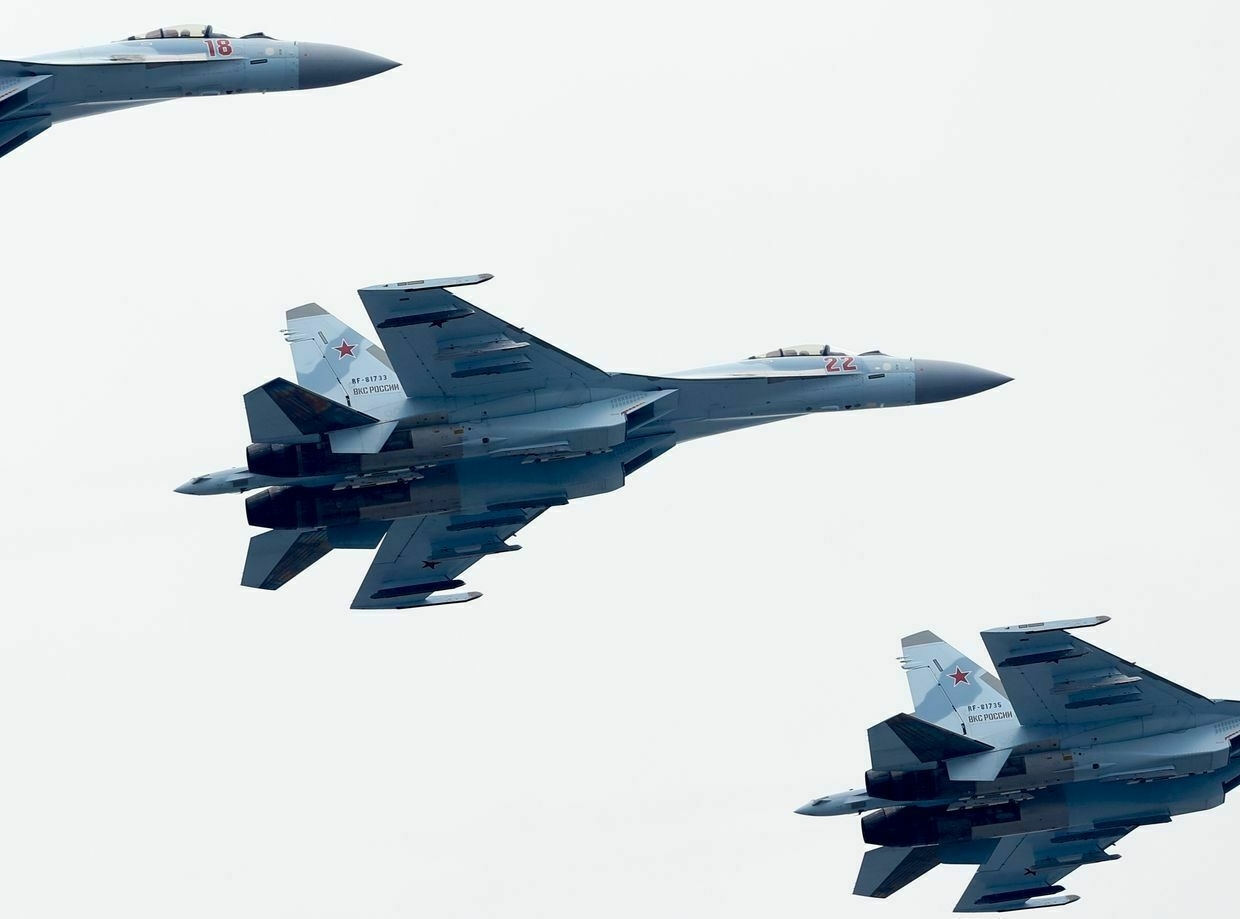
-
There are things you can't talk about: a Canadian volunteer on the horrors of war in Ukraine #shorts
-
'I am against Ukraine's entry into the European Union,' Polish president-elect Nawrocki says
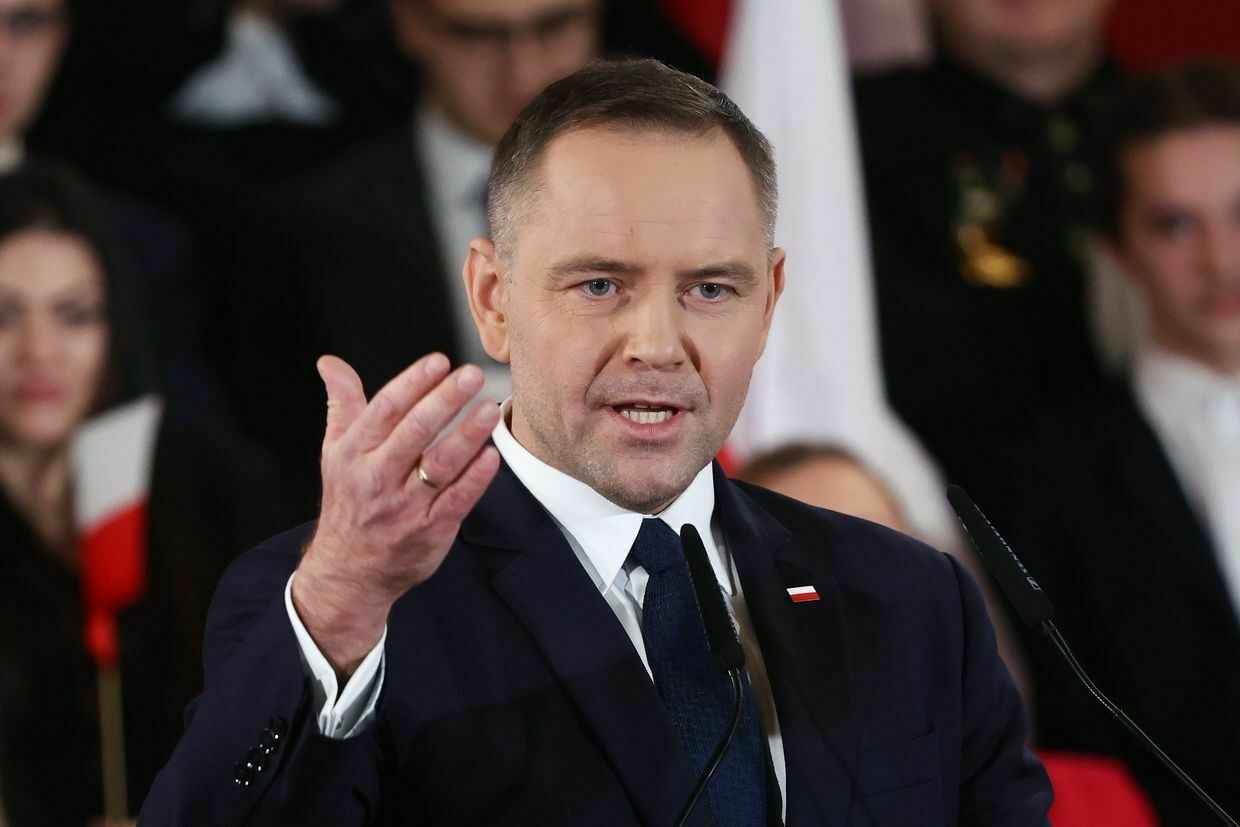
“At the moment, I am against Ukraine’s entry into the European Union,” Polish President-elect Karol Nawrocki told Hungarian outlet Mandiner in an interview released on June 7.
“On the one hand, we must support Ukraine in its conflict with the Russian Federation, but Ukraine must understand that other countries, including Poland, Hungary, and other European countries, also have their own interests,” he said.
Nawrocki won the second round of the Polish presidential election on June 1 with 50.89% of the vote. He has previously voiced opposition to Ukraine’s membership in the EU and NATO, despite supporting Ukraine’s sovereignty.
"Poland has such an interest, for example, in the exhumation of the Volyn (massacre) victims," Nawrocki said.
Polish and Ukrainian researchers began exhuming victims of the World War II era massacres on April 24 in Western Ukraine.
It was the first such exhumation since 2017, when Ukraine imposed a moratorium in response to the destruction of Ukrainian Insurgent Army (UPA) memorials in Poland.
“During the campaign, I did not agree, and as president, I will not agree, to unfair competition with Ukraine for Polish agriculture or the logistics sector,” Nawrocki said.
EU tariffs on Ukrainian agricultural exports resumed on June 6, amid opposition to Ukrainian exports and its EU accession from eastern European members, including Hungary and Poland.
“I see Ukraine as a country that, although it is very bravely defending itself against the Russian Federation, must also respect the interests of other countries that otherwise support Ukraine,” he said.
In contrast to other Eurosceptic leaders in Europe, including Slovak Prime Minister Robert Fico and Hungarian Prime Minister Viktor Orban, Nawrocki does not express pro-Russian views, but has repeatedly accused President Volodymyr Zelensky of taking advantage of allies.
Wondering where to start with Dostoevsky? Try his Ukrainian contemporaries insteadSince the start of Russia’s full-scale invasion of Ukraine in 2022, a growing debate has emerged over the cultural and political legacy of Russian literature — particularly the global reverence for classic Russian authors, which critics argue has long served to promote the imperial narratives embedded in their work. AsThe Kyiv IndependentKate Tsurkan
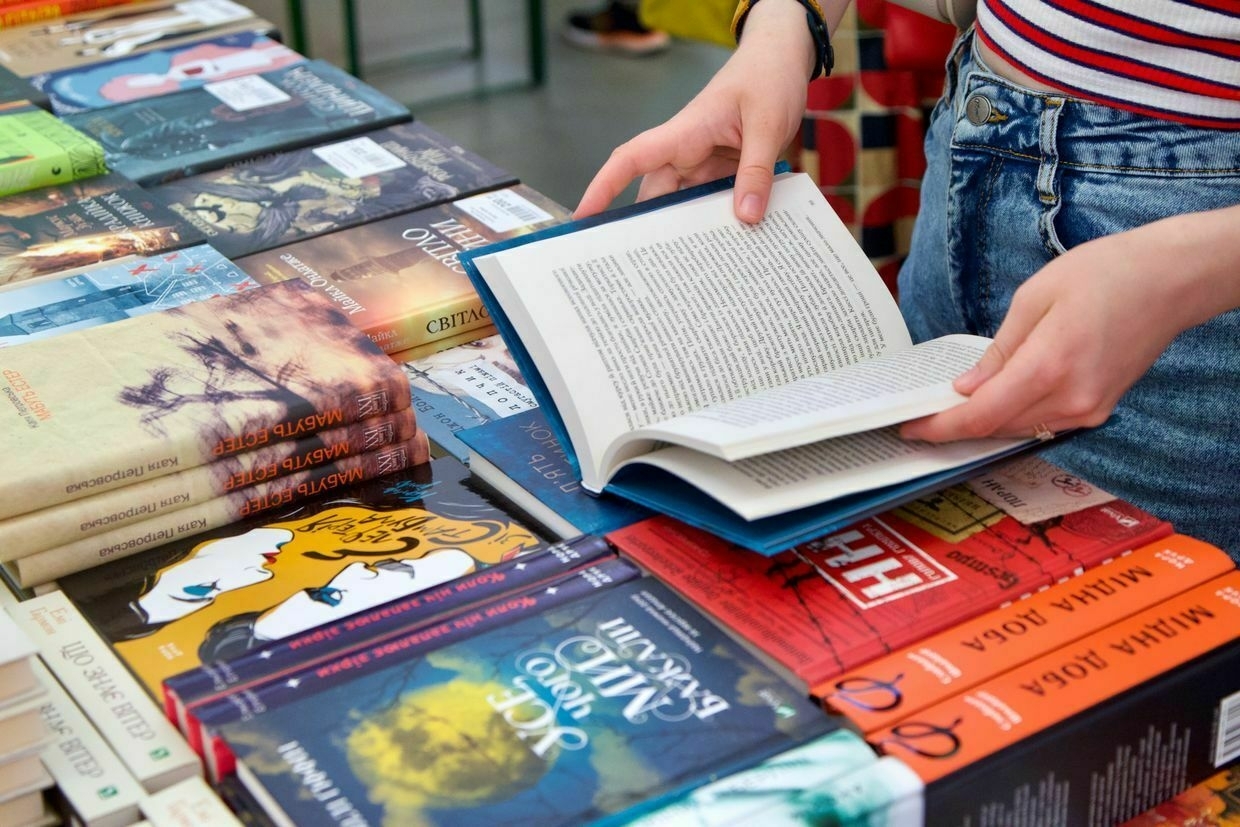
-
Wounded by a Mine, but Never Left Ukraine: The story of a military medic from Canada | Brave Hearts
-
Zelensky urges US to act on Ukraine’s request to buy air defenses after deadly Kharkiv bombing
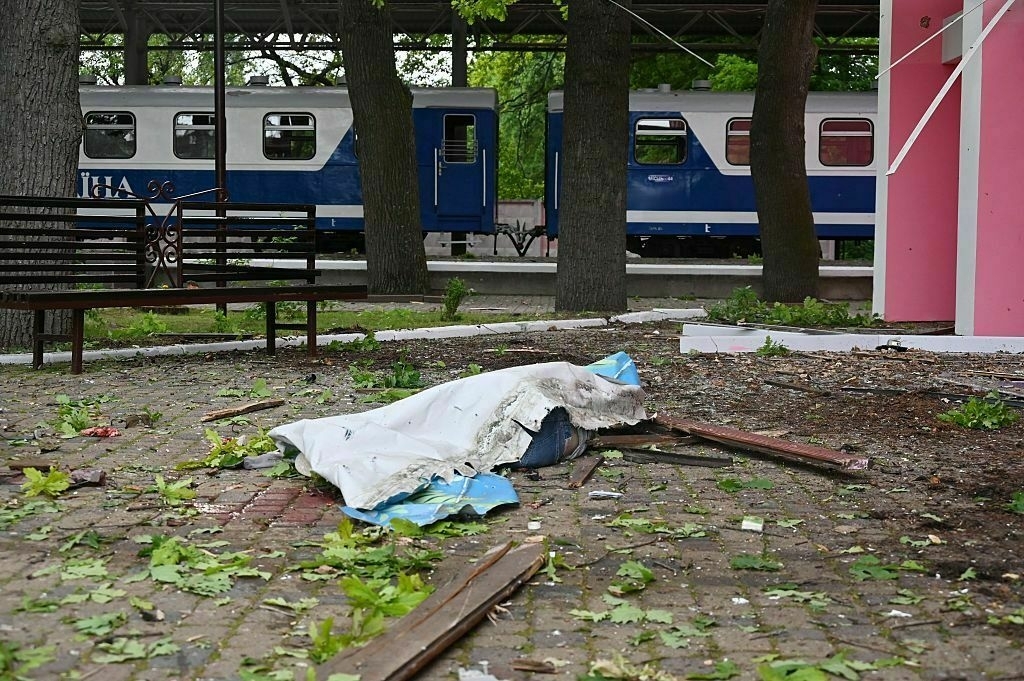
President Volodymyr Zelensky said on June 7 that Russian forces continued to brutally bomb Kharkiv, targeting the city “throughout the day” with both drones and guided aerial bombs. Two people were killed and at least 18 injured following what Zelensky called “a brutal strike on the city in broad daylight.”
“These Russian strikes are not ‘retaliation’ but acts of destruction,” the president added.
On June 6, U.S. President Donald Trump appeared to justify Russia’s large-scale attack on Ukrainian cities launched the night before, in response to Ukraine’s Operation Spiderweb. He said earlier that Russia’s response to Ukraine’s Operation Spiderweb is likely “not going to be pretty."
“They gave (Russian President Vladimir) Putin a reason to go in and bomb the hell out of them last night,” Trump told reporters aboard Air Force One.
Zelensky stressed that Russia’s goal is the complete erasure of life in Ukraine and reiterated that in all occupied territories, Russia has shown its true intent — building only military infrastructure and looting anything of value. “In more than 11 years of war, Russia has brought only one new thing to our land — ruins and death,” he said.
Zelensky highlighted Ukraine’s urgent need for air defense and appealed specifically to the United States: “We still await a response to our proposal to purchase systems that can help. We need concrete signals, not words.” He thanked European countries for their support and underlined the need for joint production of air defense systems and missiles, noting this is essential not only for Ukraine but for all of Europe.
He also renewed calls for increased international pressure, saying that “no form of pressure on Russia can be eased.” Zelensky warned that Moscow continues to prepare for war and ignores every peace proposal: “They must be held accountable."
Reporting on recent military updates, Zelensky said Ukrainian forces destroyed three Russian Iskander missile launchers used to strike Ukrainian communities. He also confirmed the downing of a Su-35 fighter jet, damage to Russian helicopters, and new strikes against Russian military logistics and airfields. “Every complication for Russia matters for our defense,” he said.
Ukraine refutes Russia’s claims of disrupting POW exchange“If the Russian side is now backing away from what was promised in Istanbul, it raises serious questions about the reliability and capability of their negotiating team,” Ukraine’s Defense Ministry said on June 7.The Kyiv IndependentDaria Shulzhenko
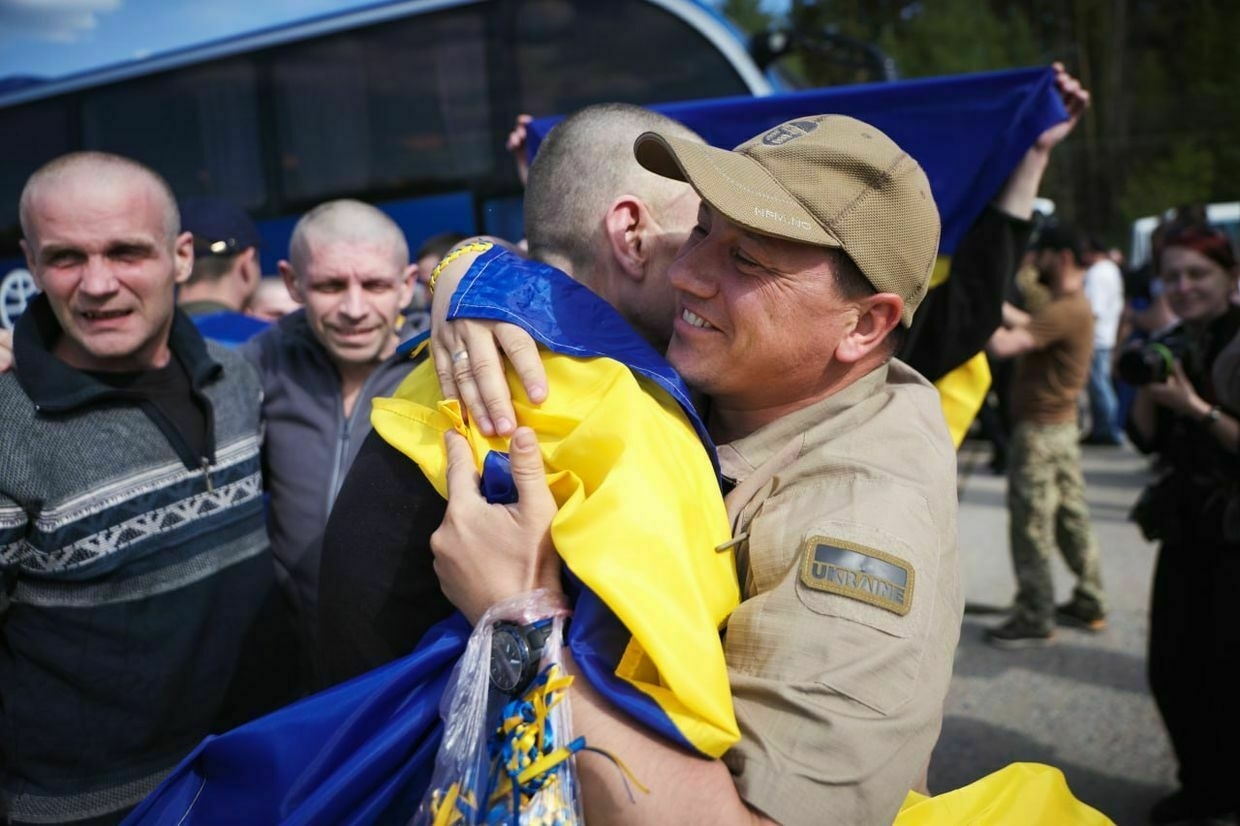
-
Russia bombs Kharkiv day after deadly overnight attack, killing 1, injuring 18
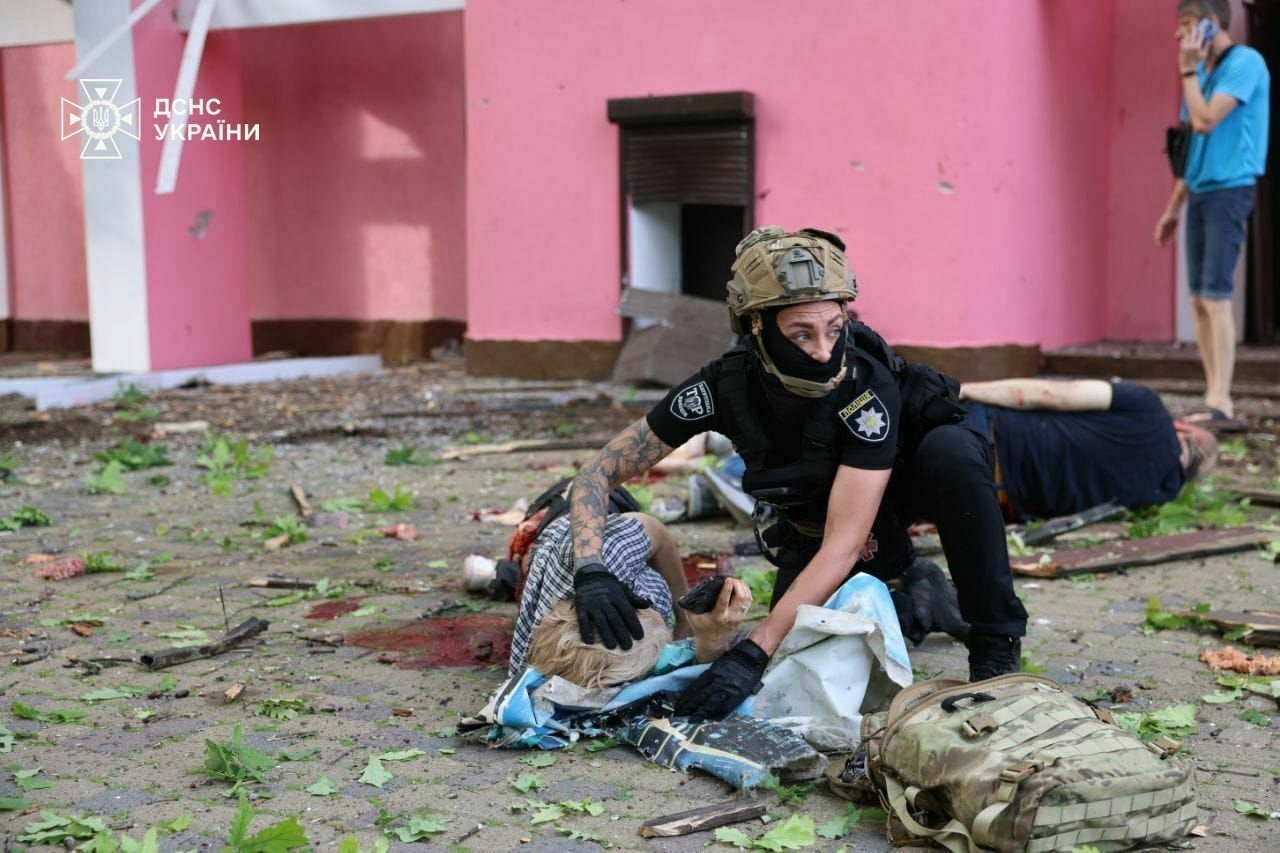
Editor’s Note: This is a developing story and is being updated.
Russia attacked the city of Kharkiv with KAB guided bombs the evening of June 7, killing one woman and injuring at least 18 people.
The bombing follows a night of deadly Russian strikes against the city. Russia launched drones, missiles, and guided bombs at Kharkiv overnight on June 7, killing at least three people and injuring 19, including two children.
Rescuers were still searching for the bodies of six victims believed to be trapped under the rubble on the afternoon of June 7, according to the regional prosecutor’s office.
At around 5:30 p.m. local time, Mayor Ihor Terekhov warned that Kharkiv was again under attack from guided aerial bombs.
Russia launched four KAB bombs at central Kharkiv, targeting the city’s Shevchenkivskyi and Kyivskyi districts, Governor Oleh Syniehubov reported after the attack. One of the bombs hit the Children’s Railway, a popular gathering place for families.
A 30-year-old woman was killed in the attack, Syniehubov said. Another 18 people were injured, with three in serious condition.
The attacks damaged two buildings and four cars at the Children’s Railway, two homes, and a farm building. Emergency responders are still at work on the scene.
The previous night, Russia struck civilian targets across Kharkiv, including an apartment building. The attack killed three and injured 19, including a 1-month-old baby. Extensive search-and-rescue operations were underway following the strike.
Kharkiv Oblast in northeastern Ukraine suffers frequent Russian assaults due to its vulnerable front-line position.
Operation Spiderweb ‘gave Putin a reason to bomb the hell out of them,’ Trump says, following large-scale attacks on Ukrainian citiesU.S. President Donald Trump on June 6 appeared to justify Russia’s large-scale attack on Ukrainian cities launched the night before, in response to Ukraine’s Operation Spiderweb.The Kyiv IndependentDmytro Basmat
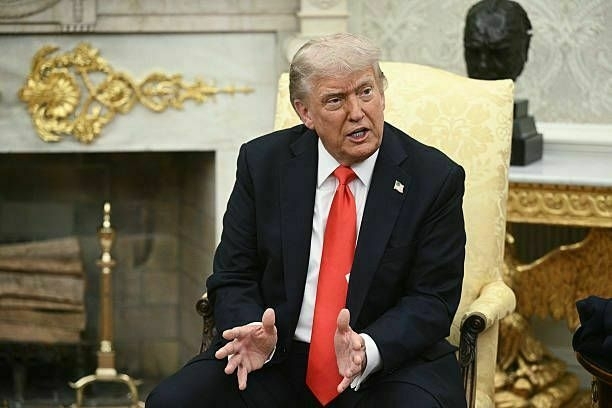
-
Right on target! The Ukrainian Armed Forces destroy rare Russian equipment #shorts
-
Ukrainian drone attack on Russian airbases sparks questions over Kazakhstan's possible involvement
In a development reported by the independent Kazakh outlet Ulys-Media, 37-year-old Artem Timofeev, reportedly wanted in Russia, allegedly rented a warehouse in Chelyabinsk from which five trucks reportedly departed carrying drones.
These drones are said to have attacked Russian strategic aviation airports. Timofeev is believed to have traveled to Kazakhstan with his wife from Chelyabinsk to Astana, before flying to an undisclosed location. The exact timeline of their departure from Kazakhstan remains unreported, but according to the Russian site ura.ru, his last Telegram post before reaching Astana was on May 28, which he subsequently deleted.
Kazakhstan's Foreign Ministry spokesperson Aybek Smadiyarov commented to DW, noting he lacked details on Timofeev's stay in Kazakhstan, suggesting the Border Service may provide insights on any border crossing, though they remain silent amidst national holiday closures for Eid al-Adha celebrations.
During a June 2 briefing in Astana, Kazakhstan's possible involvement in supplying drone components attacking Russian bases was questioned by both Ulys-Media and TASS. Smadiryarov, refraining from confirm or deny, left these inquiries to "military experts".
The Kazakh expert community has not remained distant. With perspectives spanning former intelligence officers to political analysts, discussions abound.
One such expert, Nate Duatbaev, former head of Kazakhstan’s National Security Committee, did not rule out the possibility of drones' component origins from Kazakhstan in a statement to Orda. He pointed out potential unmonitored passages along the extensive Kazakh-Russian border, though expressing skepticism regarding explosive and parts’ Kazakh origin, adding it’s easier to procure in Chelyabinsk.
Conversely, Kazakh political scientists and parliament members view Russian telegram channels’ narrative as undermining Kazakhstan by embroiling it in international disputes. Almaty-based political scientist Vitaly Koltochnik shared with DW that Russia is both deflecting internal defense shortcomings and leveraging scenarios to pressure Kazakhstan. This action forces officials into a defensive posture and compliance with Russian interests.
Furthermore, under President Kassym-Jomart Tokayev, Kazakhstan prioritizes national over regional deference. Underlining transparency and neutrality, Tokayev’s stance rebuffs external projections of influence.
Kazakhstani Parliament's People's Party member Irina Smirnova believes unfounded complaints won’t harm Kazakh-Russian ties. Stressing evidence necessity over sheer narrative, Smirnova dismissed weightless allegations and advocated thoughtful evaluations of geopolitical friction.
-
Ukrainian drone strikes Russian Tu-22 bomber: SBU releases new footage of Operation Spiderweb
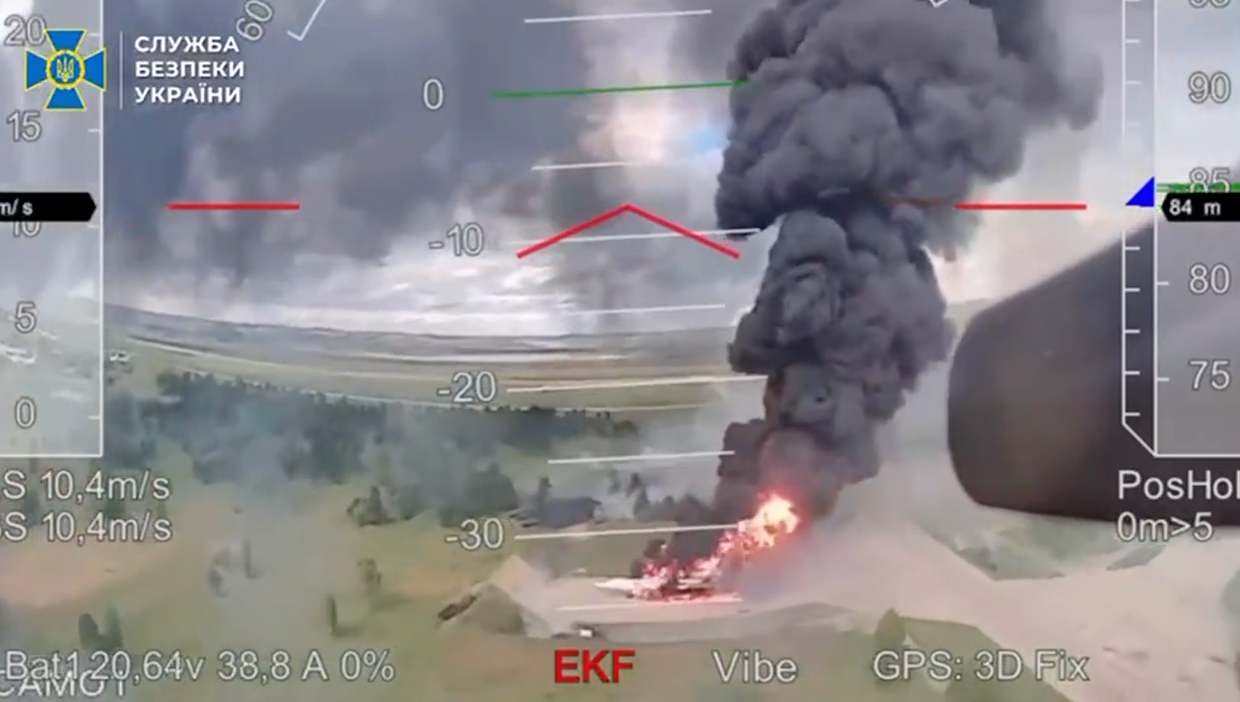
The Security Service of Ukraine (SBU) on June 7 released new footage from Operation Spiderweb, Kyiv’s daring mass drone strike against four Russian military airfields on June 1.
The video shows the flight path of a first-person-view (FPV) drone from the moment it takes off from the roof of a modular building to the moment it strikes a Russian Tu-22M3 strategic bomber at the Belaya air base in Siberia.
The drone flies a considerable distance from its launch point to the airfield, where smoke is already rising from planes struck earlier in the operation. The video shows a previously hit Russian aircraft engulfed in flames.
Russia’s Belaya air base in Irkutsk Oblast, Siberia, is located over 4,000 kilometers (2,500 miles) from Ukraine,
0:00/A Ukrainain FPV drone targets a Russian Tu-22 strategic bomber at Belaya airfield during Operation Spiderweb, a mass drone strike against Russia’s military aircraft carried out on June 1, 2025. (Security Service of Ukraine) Operation Spiderweb involved smuggling FPV drones deep into Russian territory, according to the SBU. The drones were hidden in mobile wooden cabins on trucks and remotely launched at the right moment to strike bombers used in missile attacks on Ukrainian cities.
The operation took 18 months to plan and execute.
The SBU said the strikes disabled 34% of Russia’s cruise missile bombers and inflicted approximately $7 billion in damage.
The Belaya air base was among the most distant targets. Other bases included the Olenya (Murmansk Oblast), Diaghilev (Ryazan Oblast), and Ivanovo (Ivanovo Oblast) air bases.
Ukraine said the strike succeeded in damaging 41 planes, including Tu-95 and Tu-22M3 bombers and rare A-50 spy planes. The Kyiv Independent could not independently confirm the number of planes allegedly damaged or destroyed, though open-source intelligence analysts have confirmed that at least 21 aircraft were damaged or destroyed.
President Volodymyr Zelensky said on June 7 that Ukraine only used domestically produced drones in the attack.
Ukraine downs fighter jet in Russia’s Kursk Oblast, Air Force saysUkraine launched a cross-border incursion into Kursk Oblast in August 2024. Reinforced by North Korean troops, Russia launched a push to recapture the region in early March, with Ukraine being forced to pull back from much of the initially taken territory.The Kyiv IndependentDaria Shulzhenko
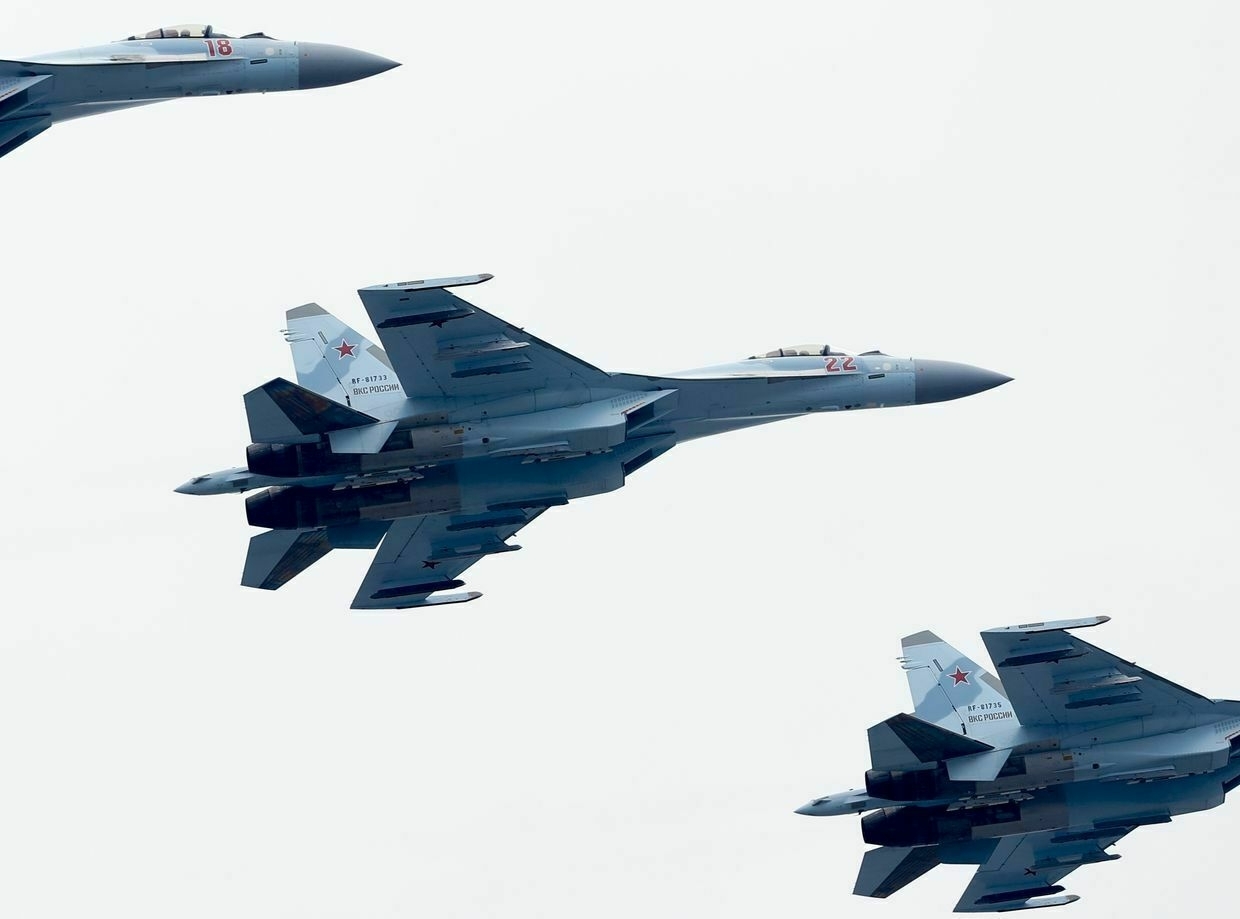
-
France to produce drones in Ukraine, minister says
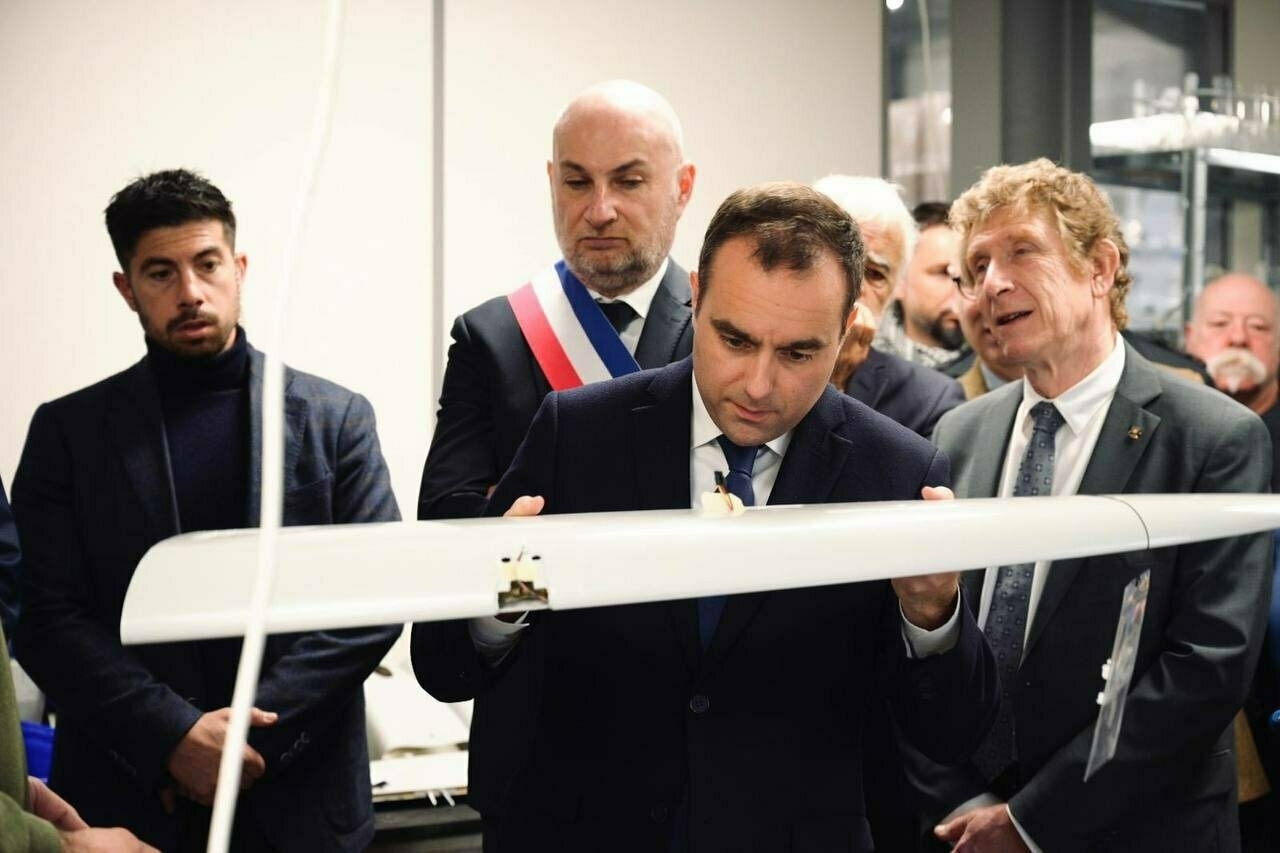
French automotive and defense companies will produce drones on Ukrainian soil, French Defense Minister Sebastien Lecornu announced on June 6, Le Monde reported.
“We are going to embark on a completely unprecedented partnership where a large French car company – I won’t name it because it’s up to them to announce it – will join forces with a French defense SME (small to medium-sized enterprise) to equip production lines in Ukraine to be able to produce drones,” Lecornu said, as quoted by the newspaper.
Lecornu did not specify the types of drones to be produced.
He said that, apart from Ukraine, the drones will be also provided “to our own armies… to have ongoing tactical and operational training that reflects the reality.”
Lecornu also said there is “no need” to send French citizens to work on the production line, since it will be set up in Ukraine, where Ukrainians “are better than us at designing drones and especially at developing the strategies that accompany them."
Since the start of the full-scale invasion, Ukraine has been developing and deploying technological innovations and cutting-edge unmanned systems. Both Ukraine and Russia have increasingly relied on drone warfare, using aerial, naval, and ground-based drones for reconnaissance and combat missions.
In late March, presidential advisor Alexander Kamyshin said in an interview with Radio Khartia that Ukrainian manufacturers had the capacity to produce over 5 million FPV drones per year.
Ukraine war latest: Russia hits Ukraine with large-scale attack days after Operation Spiderweb; Ukraine targets Russian air bases in ‘preemptive strike’Key developments on June 6: * Russia hits Ukraine with large-scale attack days after Operation Spiderweb * Ukraine strikes Russian air bases in ‘preemptive strike’ ahead of drone, missile attack, General Staff says * Ukrainian drone attack destroys helicopter at Russian airfield in Bryansk, media says * Russia plans to occupy Ukraine east ofThe Kyiv IndependentThe Kyiv Independent news desk
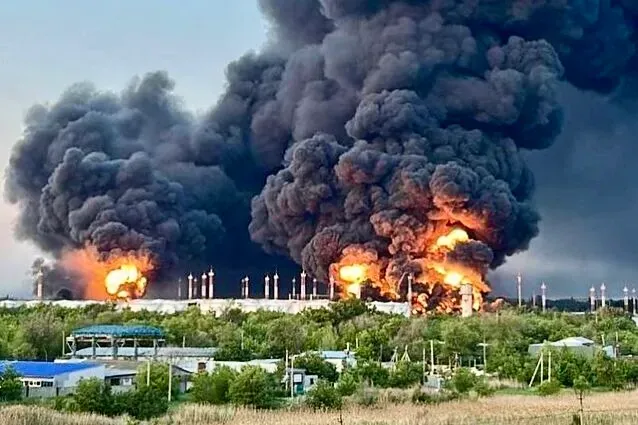
-
Ukraine refutes Russia’s claims of disrupting POW exchange
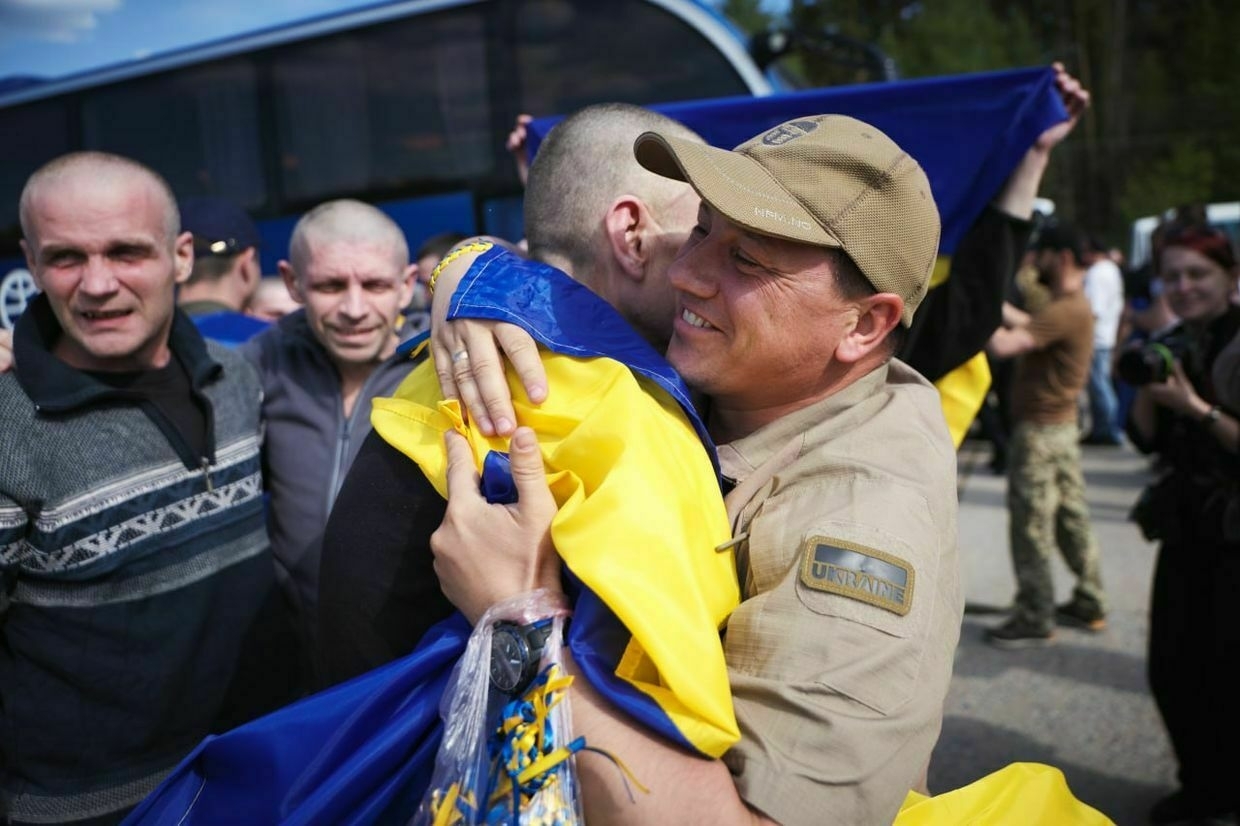
Ukraine has denied Russian claims that it had delayed a planned exchange of prisoners of war (POWs) and the bodies of fallen soldiers, reportedly scheduled for June 7-8.
Ukrainian and Russian delegations agreed to conduct a major swap, which would include severely injured prisoners and young people aged 18 to 25, during their second round of direct peace talks in Istanbul on June 2.
After the talks, Russia also pledged to transfer 6,000 bodies of fallen Ukrainian soldiers and officers to Ukraine. President Volodymyr Zelensky noted that preparations for exchanging the bodies would begin after the POW swap.
On June 7, however, Vladimir Medinsky, head of the Russian delegation in peace talks, claimed that the contact group of the Russian Defense Ministry was reportedly stationed at the border with Ukraine, but the Ukrainian side “unexpectedly postponed both the transfer of bodies and the POW exchange indefinitely.”
Ukraine’s Defense Ministry dismissed the claim as false, saying it was an attempt by Russia to avoid returning Ukrainian POWs from captivity and take their POWs back to Russia.
“Unfortunately, the Ukrainian side is once again facing attempts to retroactively revise agreements. If the Russian side is now backing away from what was promised in Istanbul, it raises serious questions about the reliability and capability of their negotiating team,” the ministry wrote on Telegram.
Ukraine’s Coordination Headquarters for the Treatment of POWs also refuted Russia’s claim, saying that “instead of constructive dialogue, Ukraine once again faced manipulations and attempts to exploit sensitive humanitarian issues for information purposes.”
According to the headquarters, Ukraine submitted lists of POWs “formed according to clearly defined categories agreed upon during the negotiations in Istanbul,” while the Russian side “provided different lists that do not correspond to the agreed approach."
The headquarters also added that an agreement on the repatriation of bodies of fallen soldiers was made, but the date was not set.
“Instead of consistently implementing the agreed procedure, the Russian side took unilateral actions that were not coordinated within the joint process,” the statement reads.
“Unfortunately, instead of constructive dialogue, we are once again faced with manipulations and attempts to exploit sensitive humanitarian issues for information purposes. We remain committed to a real outcome — the return of our prisoners and the bodies of the fallen — and are ready to continue working within the agreed framework."
The latest direct Russia-Ukraine talks, hosted by Turkish officials, followed the first round of negotiations on May 16. The initial meeting ended with an agreement on the largest prisoner exchange of the war, but without any tangible progress toward a peace deal.
Ukraine has returned over 5,000 prisoners via exchanges with Russia since March 2022, according to officials. Kyiv has repeatedly pressed Moscow to agree to an “all-for-all” prisoner exchange, but Russia has rejected the proposal.
‘It’s okay, Mom, I’m home’ —Ukraine, Russia hold largest prisoner swap of the warEditor’s note: The article incorrectly said that only soldiers were brought back to Ukraine as part of the exchange. Ukraine has brought back home 290 soldiers and 120 civilians. Their eyes fill with tears as they hear people shouting, ‘Thank you!’ and ‘Glory to Ukraine!’ The soldiers have just arrivedThe Kyiv IndependentDaria Shulzhenko
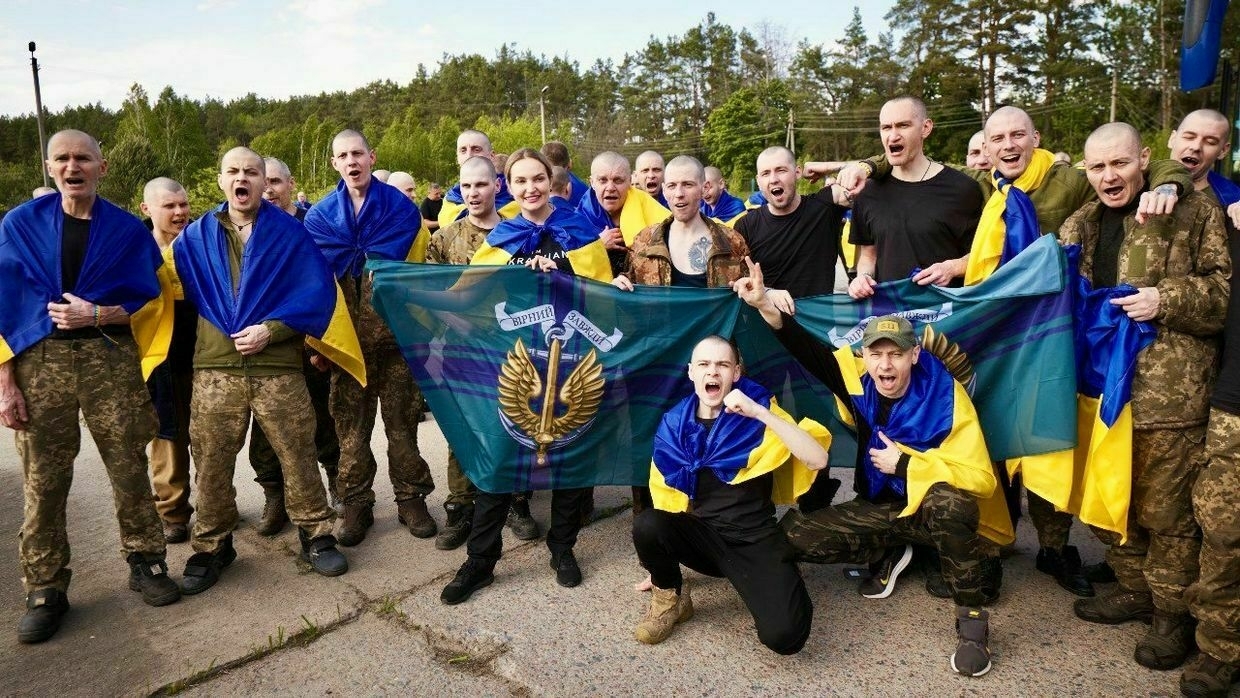
-
Wondering where to start with Dostoevsky? Try his Ukrainian contemporaries instead
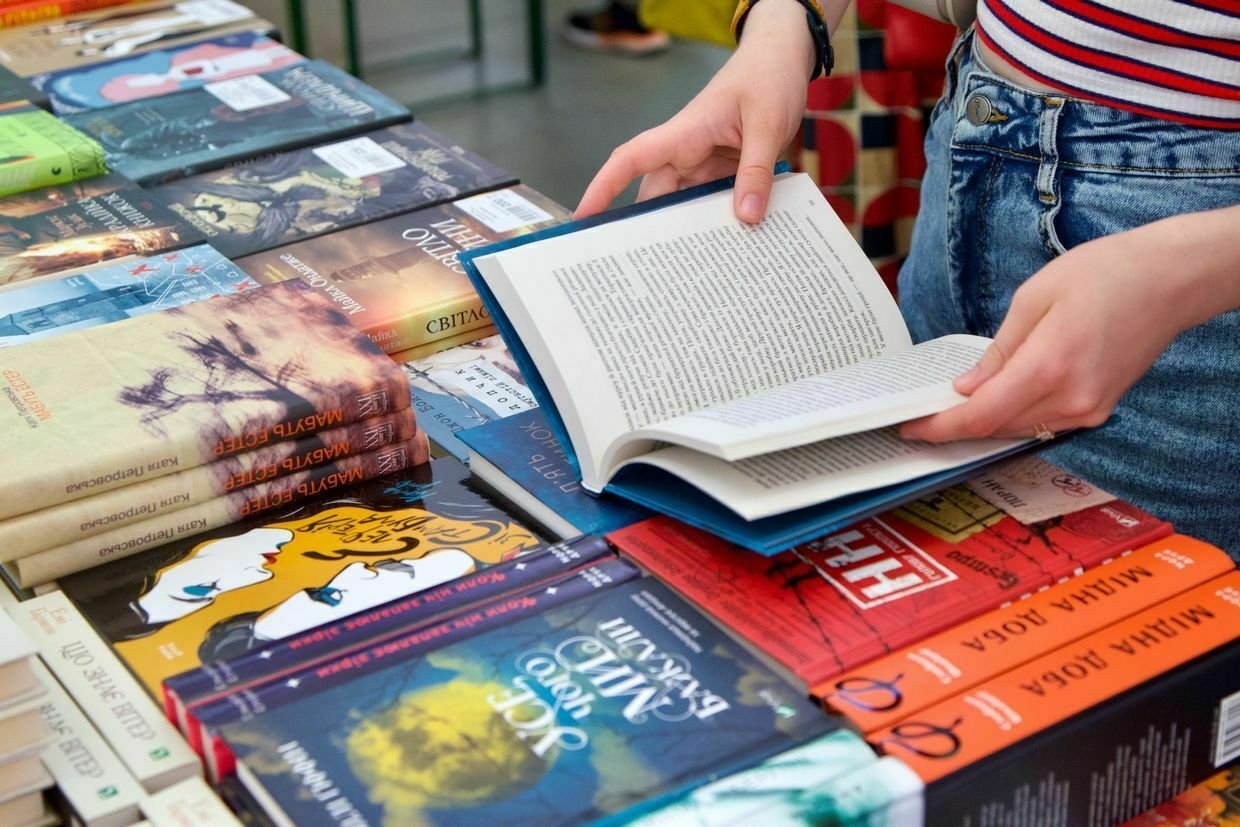
Since the start of Russia’s full-scale invasion of Ukraine in 2022, a growing debate has emerged over the cultural and political legacy of Russian literature — particularly the global reverence for classic Russian authors, which critics argue has long served to promote the imperial narratives embedded in their work.
As Ukrainian author Oksana Zabuzhko wrote in the Times Literary Supplement in 2022, their works of literature are “the camouflage net” for Russian tanks in Ukraine.
Among the most famous classic Russian authors is 19th-century Russian author Fyodor Dostoevsky (1821–1881). More than a century after his death, Dostoevsky remains a dominant figure in the world literary canon, his name recognized even by those who have never read his work.
This April, Penguin Books reissued an English-language edition of his short story “The Dream of a Ridiculous Man,” while his novella “White Nights” continues to enjoy popularity among online literary communities.
Defenders of Dostoevsky maintain that his writing transcends politics, focusing on existential and psychological themes. They argue that interpreting his work through a nationalist or imperialist lens oversimplifies the complexity of his ideas.
But many scholars and commentators point to Dostoevsky’s spiritual vision of Russia’s destiny — a vision that portrays the country as a moral, unifying force against a “decaying” West that was, at the time, heading toward the Gilded Age. They draw parallels between this worldview and that of contemporary Russian ideologues like Alexander Dugin, who frame Russian aggression in near-religious terms.
As the war continues, it remains to be seen whether Russia’s literary past can be disentangled from its politics.
Rather than calling for a boycott of Russian authors, the Kyiv Independent wants to raise a more illuminating question: Why do so few English-language readers know the Ukrainian authors who were the contemporaries of Dostoevsky?
The lack of global recognition for Ukraine’s classic writers is not coincidental. It reflects a legacy of imperial domination, during which the Russian Empire frequently suppressed the Ukrainian language and culture, the same empire that Dostoevsky often praised in his writings.
Some of the most influential voices in the history of Ukrainian literature were active during the same period as Dostoevsky. Others who came just before him, like Mykola Gogol, are known worldwide but have long been misclassified as “Russian.” Literary figures such as Lesia Ukrainka and Ivan Franko, who came to the literary scene just after Dostoevsky’s time, are now reemerging in English translation — their essential works poised to resonate with a global audience, just as they once did across the European intellectual landscape.
Although there is no evidence that Dostoevsky knew his Ukrainian contemporaries, they did interact with some other famous Russian authors. Below is a brief overview of three Ukrainian authors of the 19th century and the themes that shaped their work.
The purpose of this list is not to outright dismiss Russian literature, but rather to remind people of the selective nature of the global literary canon, and to draw attention to the Ukrainian voices that have long been overlooked or marginalized.
Taras Shevchenko (1814 - 1861)Born a serf, Ukrainian national icon Taras Shevchenko gained his freedom thanks to his artistic talent. But liberation did not end his struggle — instead, it sharpened his focus on the plight of his people under Russian imperial rule. A pioneer of ethnographic art and literature, Shevchenko used both pen and brush to document the everyday lives of Ukrainians, casting a critical eye on their subjugation and the erasure of their culture.
Published in 1840, “Kobzar” is widely regarded as Taras Shevchenko’s defining work. The collection takes its name from traditional Ukrainian musicians who sang of Cossack heroism while playing the kobza, a stringed instrument.
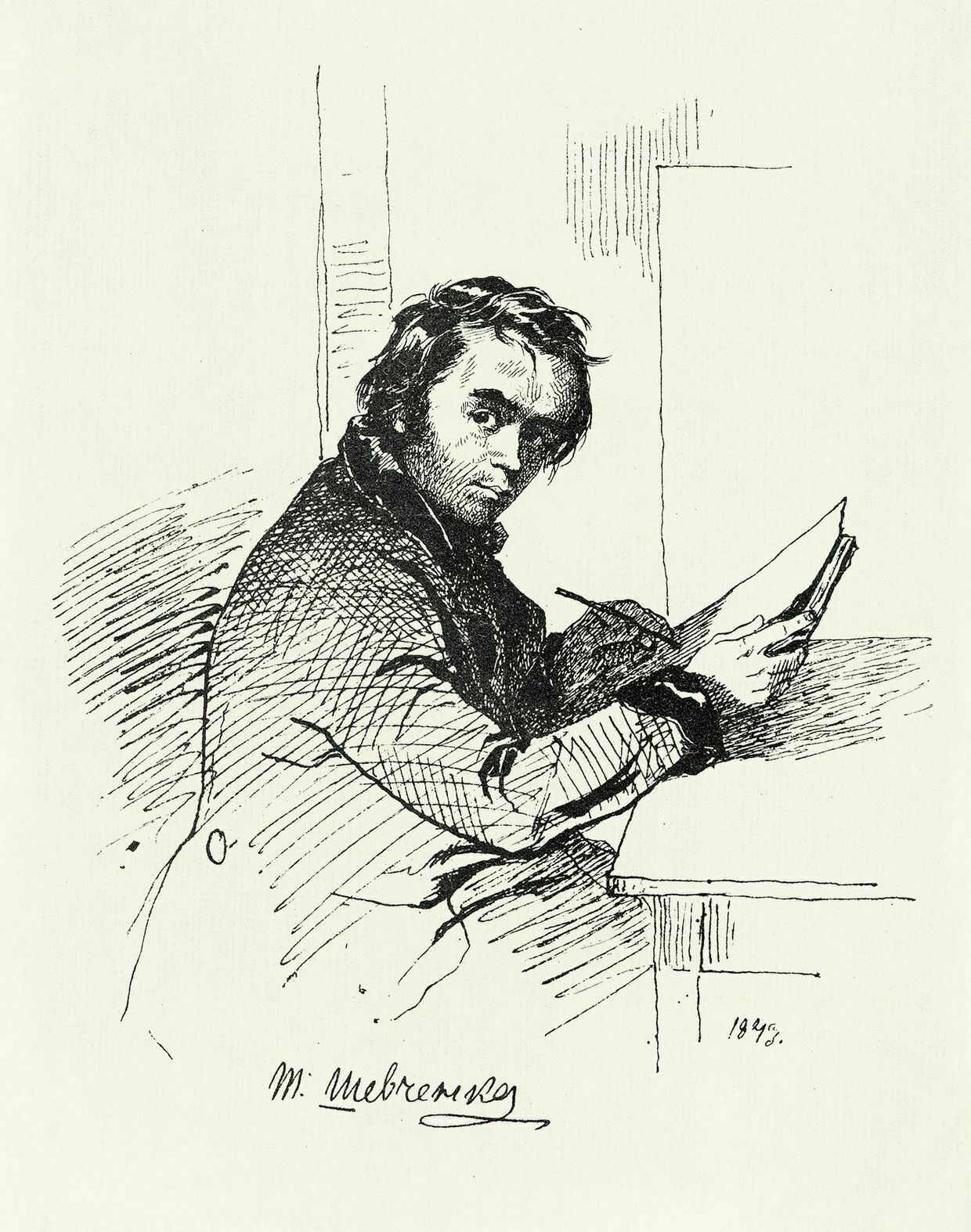
Taras Shevchenko (1814–1861) was the foremost Ukrainian poet, writer, artist, public and political figure, folklorist, and ethnographer of the 19th century. Self-portrait (1843). (Wikimedia) The poems reflect on the cultural and political struggles of Ukraine under Russian rule. In “To Kvitka-Osnovianenko,” Shevchenko pays tribute to the writer Hryhorii Kvitka-Osnovianenko, an early advocate of Ukrainian as a literary language, and mourns the destruction of the Zaporizhzhian Sich, the Cossacks’ last stronghold, in the 18th century. Another poem, “Kateryna,” tells the story of a young Ukrainian woman seduced and abandoned by a Russian imperial soldier, highlighting the personal toll of imperial domination.
Shevchenko was deeply influenced by ideas of national identity, language, and self-determination — views that drew the ire of the tsarist authorities. He was arrested in 1847 and exiled to military service in a remote part of Kazakhstan. According to historical accounts, Tsar Nicholas I reportedly ordered that Shevchenko be restricted from writing or painting. However, Shevchenko still managed to create art and later returned briefly to Ukraine before his death.
Looking to read Ukraine-related books? We picked the best of 2024The year 2024 proved to be another landmark for books about Ukraine and Ukrainian literature in translation, with a continued trend in publishing in fiction, non-fiction, and poetry. Unsurprisingly, Russia’s ongoing full-scale war against Ukraine was the most common topic among these works. Whether through incisive on-the-ground reportage thatThe Kyiv IndependentKate Tsurkan
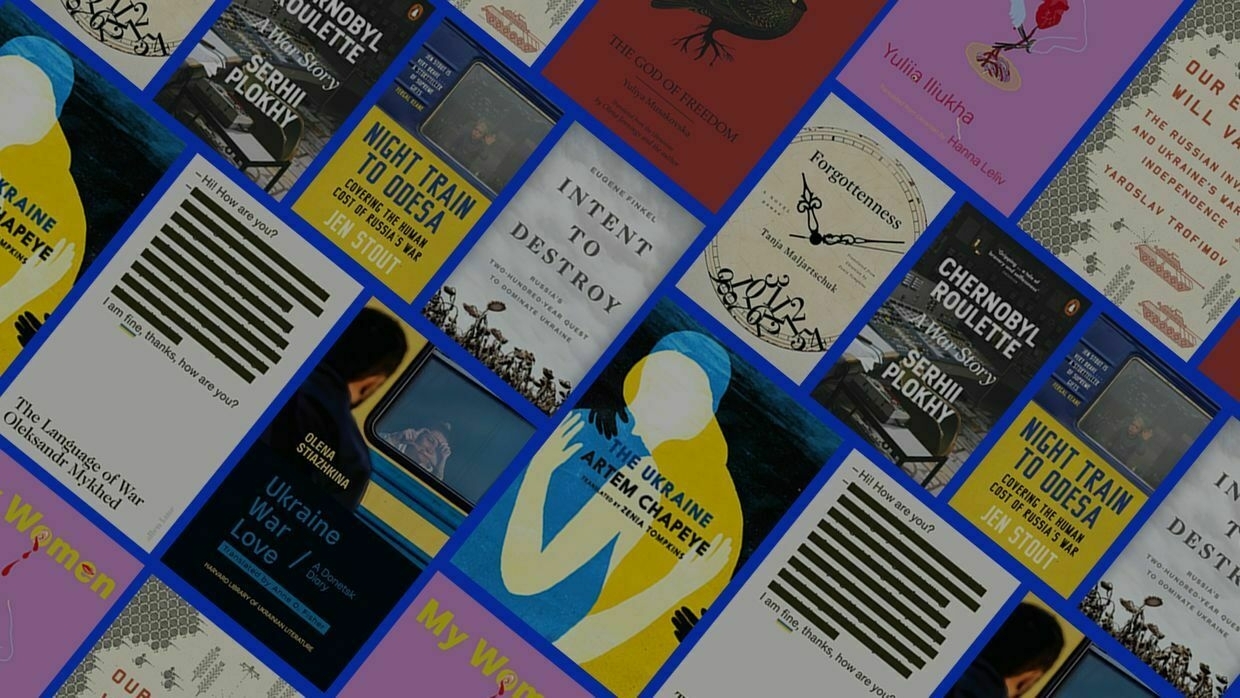
Panteleimon Kulish (1819 - 1897)Kulish’s politics were somewhat complex, perhaps even contradictory to some. In his early years, he was affiliated with the Brotherhood of Saints Cyril and Methodius, a short-lived secret political society that existed between 1845 and 1847. The group championed the federalization of the Russian Empire, a Ukrainian language and culture revival, and the abolition of serfdom, among other initiatives.
Over time, however, Kulish’s stance diverged from mainstream Ukrainian thought, particularly as he advocated for the preservation of a distinct Ukrainian culture while simultaneously supporting a political union with Russia.
This position ultimately led to his marginalization in many Ukrainian intellectual circles, both in Russian-controlled Ukraine and the parts of Ukraine under the rule of the Austro-Hungarian Empire. Despite this, Kulish continues to be respected and read by many Ukrainians today for his literary achievements.
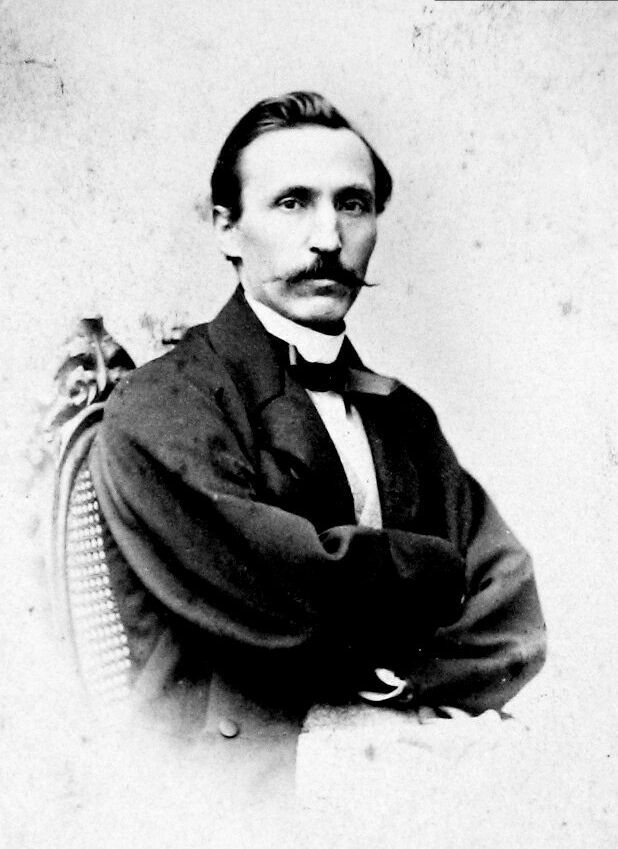
Panteleimon Kulish (1819–1897), a prominent Ukrainian writer, poet, critic, folklorist, historian, ethnographer, and translator. (Wikimedia) His novel “The Black Council” (1857) is considered the first historical novel in Ukrainian literature. Set against the backdrop of the Ruin — the tumultuous period following the death of Cossack Hetman Bohdan Khmelnytskyi in 1657 — it delves into the power struggles that ensued. The novel draws inspiration from the Black Council of 1663, a pivotal gathering in Nizhyn in modern-day Chernihiv Oblast, where nobles and commoners alike converged to elect a new hetman for left-bank Ukraine.
The novel not only captures the fierce internal conflicts among Cossack leaders but also explores the deep social rifts that defined one of Ukraine’s most fractured and tragic eras. Excerpts of the novel have been translated online. However, a full publication of the book in English translation has yet to materialize.
Marko Vovchock (1833 - 1907)Among Ukraine’s most talented female writers was Marko Vovchok, whose “Folk Stories” was published in 1857, shortly after the ascension of Tsar Alexander II, initially seen as a reform-minded ruler compared to his father, Nicholas I. However, while the serfs were liberated under his rule in 1861, it could be argued that the liberal period of his rule, at least for Ukrainians, was short-lived: a decree in 1863 banned Ukrainian-language publications, followed by the stricter Ems Ukaz of 1876.
Vovchok’s collection gained even greater significance in this repressive climate. Focused on the suffering of Ukrainian peasants — especially women — under serfdom, the stories were informed by her early work assisting her husband’s ethnographic research. She gathered material directly from villagers, preserving oral traditions.

Marko Vovchok (1833–1907), a notable 19th-century Ukrainian writer. Wikimedia) Russian writer Ivan Turgenev translated the stories into Russian, sparking additional debate in literary circles over the realities of serfdom. Shevchenko is said to have recommended her work to Turgenev, declaring her “the most powerful in our language.”
In the short story “The Cossack Girl” from the collection, Olesia, a free woman, falls in love with a serf and chooses to marry him, ultimately sacrificing her freedom. Her family warns her that marrying a serf will disgrace their village and its Cossack heritage, even suggesting that she might as well “drown herself.” Olesia insists that love is more important than social status. The marriage, however, proves disastrous, with Olesia, her husband, and their children enduring significant hardship. Under empire, happy endings are a rarity — if they exist at all.
Note from the author:
Hi, this is Kate Tsurkan, thank you for reading this article. Here at the Kyiv Independent, we don’t put stories behind a paywall, because we believe the world needs to know the truth of Russia’s war. To fund our reporting, we rely on our community of over 18,000 members from around the world, most of whom give just $5 a month. We’re aiming to reach 20,000 soon — join our community and help us reach this goal.
10 authors shaping contemporary Ukrainian literatureThe Kyiv Independent put together a list of 10 celebrated Ukrainian writers, some of whose works are available in English translation.The Kyiv IndependentKate Tsurkan
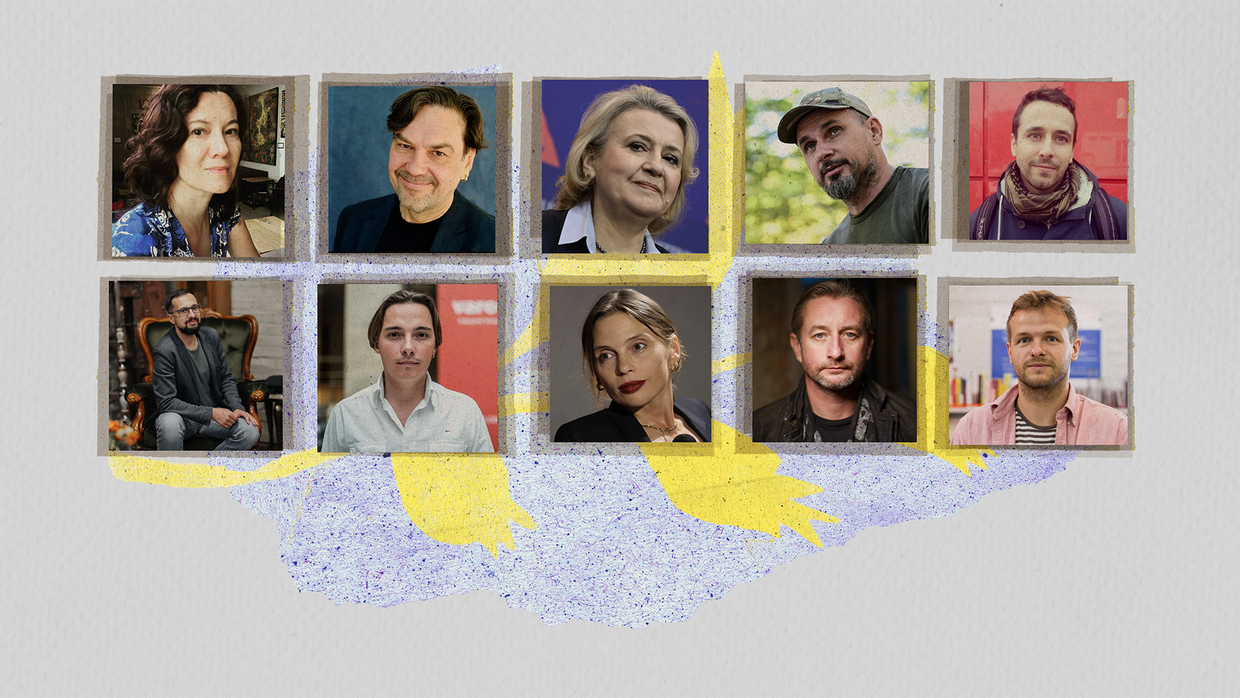
-
Levada center poll: Russians view Germany as Most hostile nation, favor Belarus and China as allies
Residents of Russia have identified Belarus, China, Kazakhstan, India, and North Korea as the friendliest nations, while ranking Germany, the UK, Ukraine, the US, and Poland as the most hostile, reported the Levada Center, citing a poll conducted among citizens in Russia.
For the first time in 20 years, the U.S. dropped to fourth position on the list of most "hostile" nations towards Russia. Germany, for the first time, topped this anti-ranking. The poll, conducted in May 2025, may reflect Russians' views on both U.S. President Donald Trump’s policies and German Chancellor Friedrich Merz's stance. Notably, Chancellor Merz had previously announced a joint initiative between Berlin and Kyiv for the production of long-range weaponry.
Two-thirds of participants firmly believe that relations between Russia and Western countries will always be founded on distrust—an all-time high, notes the Levada Center. Simultaneously, a staggering 80 percent advocate for détente. Only 14 percent of respondents deem it unnecessary to mend Russia-West relations.
Since the Levada Center’s previous survey in February 2025, sentiment towards Ukraine has worsened; 74 percent of respondents now hold a "Bad" or "Very bad" view of Ukraine, compared to 68 percent in February.
A positive view towards Ukraine is maintained by 14 percent, a drop of two percent since February. Notably, those informed through various YouTube channels have a better attitude toward Ukraine, whereas it is most harshly criticized by those who trust television.
Following Russia's full-scale invasion of Ukraine, the Russian authorities have intensified repressions and curtailed civil liberties, justifying it in part as a fight against "Western influence." This includes an ever-expanding list of "foreign agents" and the designation of certain organizations as "undesirable," equating their activities to extremism.
In early June 2025, Russia's Prosecutor General's Office declared the British Council an "undesirable" organization. This parallels the challenges faced by Germany's Goethe-Institut within Russia. According to a statement, the British Council, under the guise of educational and cultural activities, purportedly advances long-term British interests and values in education, culture, and youth policy
The British Council is renowned for administering the IELTS (International English Language Testing System) exam, essential for entry into many English-language university programs and for immigration to various countries, including Germany.
-
Canada pledges $25.5 million in military aid for Ukraine, including armored vehicles
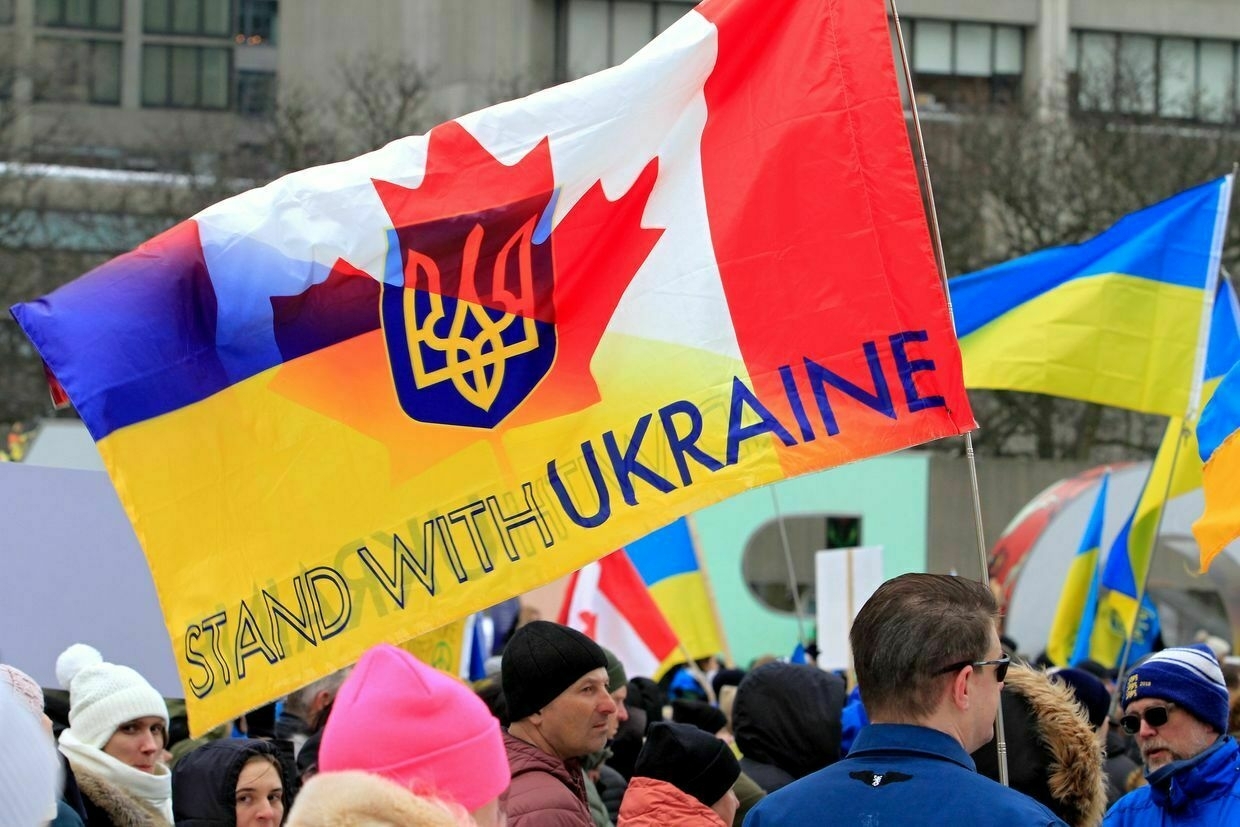
Canada will provide Ukraine with over $25.5 million in military equipment, the Canadian Defense Ministry said in a statement on June 6.
The country pledged to provide Ukraine with almost $22 million worth of Coyote and Bison armored vehicles, as well as new equipment and ammunition supplied by Canadian companies.
It adds to Canada’s earlier delivery of 64 Coyote armored vehicles, which were sent to Ukraine in December 2024.
Apart from that, Canada will provide Ukraine with around $3.6 million for electronic warfare anti-jammer kits from Canada’s defence industry, reads the statement.
The decision was announced by Canadian Defense Minister David McGuinty during the 28th meeting of the Ukraine Defense Contact Group in the Ramstein format in Brussels on June 6.
“As a founding member of NATO, Canada believes that the alliance is the cornerstone of transatlantic security and we are moving quickly to accelerate our defense spending and increase our contributions to NATO,” McGuinty said, as quoted in the statement.
“During the meeting of NATO defense ministers, Canada reaffirmed unwavering support to Ukraine as its citizens fight for their freedom, and we look forward to working closely with allies to strengthen our collective security.”
Since the start of the full-scale invasion, Canada has pledged over $19.5 billion in overall aid to Ukraine, with $4.5 billion allocated for military support, including multi-purpose drones, armored support vehicles, anti-tank weapons, small arms, M777 howitzers with ammunition.
‘Find and destroy’ – how Ukraine’s own Peaky Blinders mastered the art of bomber dronesEditor’s note: In accordance with the security protocols of the Ukrainian military, soldiers featured in this story are identified by first names and callsigns only. DONETSK OBLAST – From the moment the vehicles duck into pre-prepared positions in the leafy treeline to the first dead Russian soldiers, less than twentyThe Kyiv IndependentFrancis Farrell
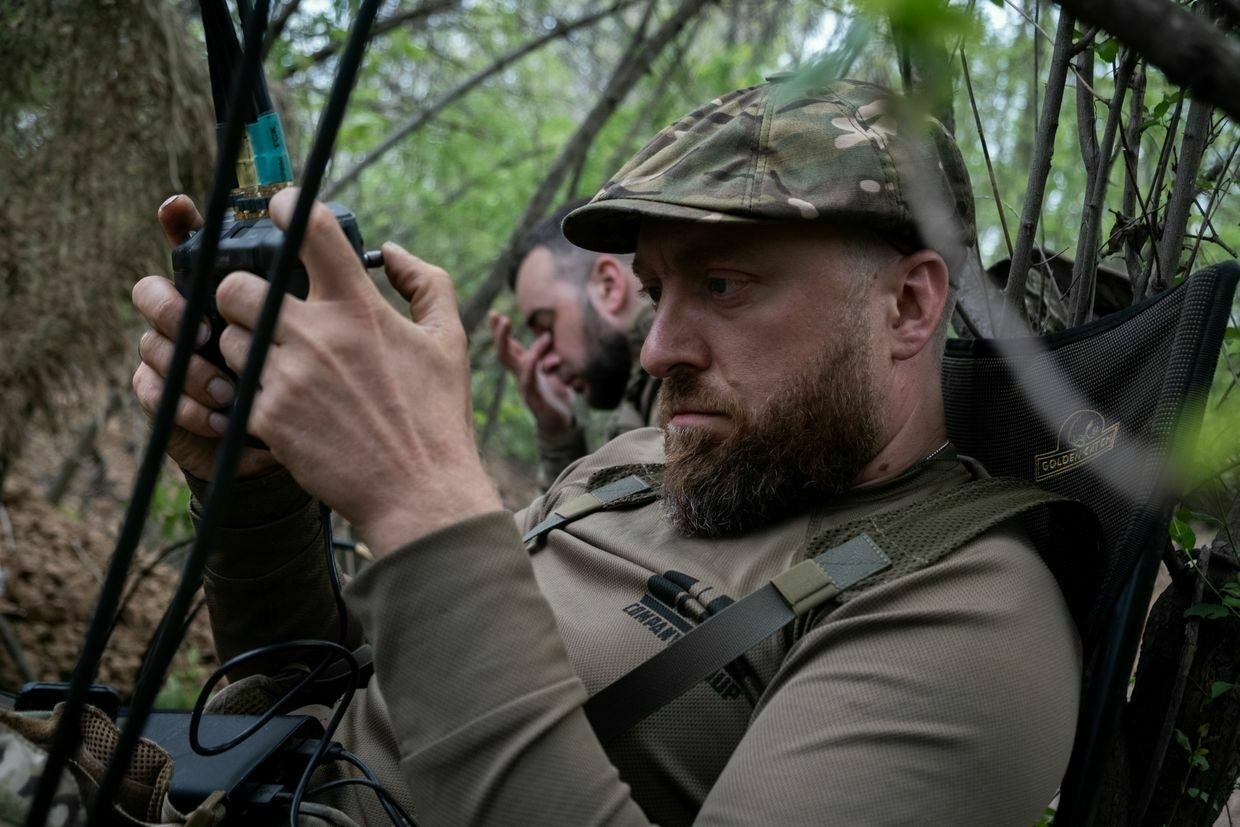
-
Three former Ukrainian Defense ministers charged with treason over military equipment dales
The Ukrainian Prosecutor General's Office reported that three former Ukrainian Defense Ministers have been accused of state treason, linked to illicit decisions that reportedly undermined the combat capability of Ukraine's Armed Forces.
According to investigative findings, between March 2010 and February 2014, during their tenures, decisions were made to divest and sell operational military armaments and equipment, despite existing shortages for the needs of Ukraine's Armed Forces. The report highlights deficits in hundreds of armored vehicles and artillery systems, dozens of anti-aircraft missile systems, and numerous combat aircraft and helicopters. Additionally, it details a lack of a million units of small arms, ammunition, and rockets. "Such armaments were critically needed by Ukraine's Defense Forces at the onset of the Russian military aggression in February 2014 and continue to be needed. The unlawful decisions by the suspects led to a decrease in the combat readiness of Ukraine's Armed Forces, national defense capability, and resulted in severe consequences," noted the Prosecutor's Office.
It is alleged that these former ministers compromised Ukraine's sovereignty, territorial integrity, and state security, while assisting Russia in conducting subversive activities against Ukraine. Although the office withheld the suspects' names, the case circumstances implicate former ministers Mykhailo Yezhel (2010-2012), Dmytro Salamatin (2012), and Pavlo Lebediev (2012-2014).
Former Deputy Secretary of the Ukrainian National Security and Defense Council, Volodymyr Sivkovych faces trial for state treason, allegedly coordinating an espionage network within Ukraine that relayed intelligence to the Russian FSB.
-
Ukrainian Forces down Russian Su-35 fighter jet in Kursk region
The Ukrainian Air Force has reported the downing of a Russian Su-35 fighter jet in the Kursk area, a claim that has also been confirmed by pro-Russian military bloggers.
According to Ukrainian military sources, the Su-35 was hit on the morning of June 7. The Air Force has released a video purportedly showing the burning aircraft.
Pro-Russian war bloggers, including Fighterbomber, Boris Rozhin, and the correspondent Yuri Kotenok, confirm the aircraft's loss. Fighterbomber’s report mentions a downed Su-35S, while Boris Rozhin talks about a "different type of aircraft." Both sources state that the pilot survived.
The last reported downing of an Su-35 by the Ukrainian military, according to their official General Staff Telegram channel, occurred back in February 2024, when Ukrainian forces also downed two Su-34s.
The developments coincided with a massive Russian air assault on Ukrainian cities on the morning of June 7. In Kharkiv, where a drone struck a residential building, the attack was labeled as "the most powerful since the outset of the full-scale war.”
-
Six people likely trapped under rubble in Kharkiv after Russian attack
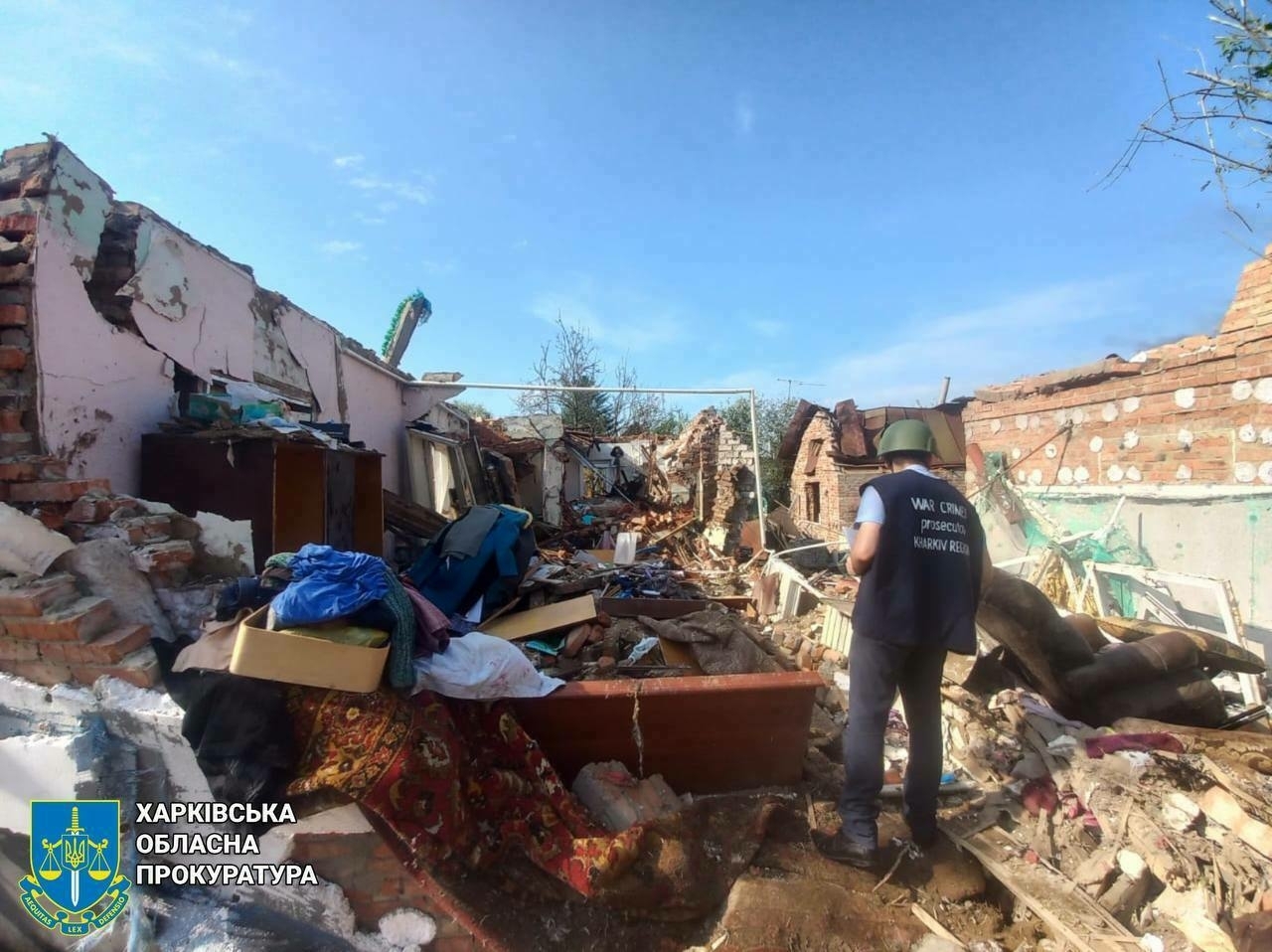
Six people are most likely trapped under the rubble of an industrial facility in Kharkiv that was hit by a Russian attack earlier in the day, the Kharkiv Oblast Prosecutor’s Office reported on June 7.
The rescue operation was ongoing as of 1:45 p.m. on June 7, reads the report.
Contact with those trapped has been lost, the prosecutors added.
Russian forces attacked Kharkiv with drones, missiles, and KAB guided bombs overnight on June 7, killing at least three people and injuring 22, according to Governor Oleh Syniehubov.
Syniehubov said that drones had struck civilian targets across the city, including a 9-story residential building, a local enterprise, a home, and other facilities.
Two children were injured in the attack, including a 1-month-old baby, Syniehubov said.
At least 40 explosions were recorded across the city amid the attack, local media reported. Mayor Ihor Terekhov reported that the Osnovyanskyi and Kyiv districts of the city suffered strikes.
According to Terekhov, 48 Shahed drones, two missiles, and four guided aerial bombs were launched toward the city.
Located along the front line, Kharkiv Oblast in Ukraine’s northeast is a regular target of Russian missile, drone, and glide bomb attacks from across the border.
Ukraine war latest: Russia hits Ukraine with large-scale attack days after Operation Spiderweb; Ukraine targets Russian air bases in ‘preemptive strike’Key developments on June 6: * Russia hits Ukraine with large-scale attack days after Operation Spiderweb * Ukraine strikes Russian air bases in ‘preemptive strike’ ahead of drone, missile attack, General Staff says * Ukrainian drone attack destroys helicopter at Russian airfield in Bryansk, media says * Russia plans to occupy Ukraine east ofThe Kyiv IndependentThe Kyiv Independent news desk
